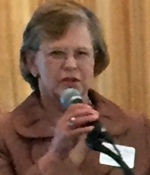
Rosemary (Shurte) Tisch, MA ’69 (Counseling Psychology), informs us that she received the Hope Tribute Award for advocating for children and adolescents affected by addiction and co-occurring disorders. The honor was in recognition of her 30-plus years of effort to create education-support, group-curricula focused on breaking the cycle of addiction in the United States, Russia and Mexico. It was presented in November in San Francisco at the 3rd Annual Miracles Breakfast, hosted by Constellation Behavioral Health award. Among her many roles Rosemary serves as an advisor and consultant to the National Drug Endangered Children Alliance and the National Association for Children of Alcoholics.
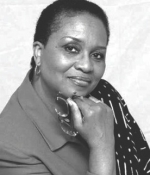
Joyce Elaine King ’69, PhD ’74 (Social Foundations of Education), was inducted into the Stanford Multicultural Alumni Hall of Fame in October in honor of her distinguished service to the African-American community and society at large. [See August 2015 Class Note.]
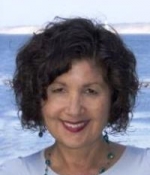
Peggy Estrada, PhD ’87 (Psychological Studies Education): See the item for Ilana Umansky, PhD ’15, about a policy brief that the two co-authored with colleagues about improving education for English Learners in California.
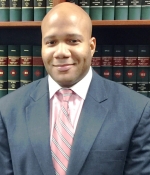
Julian Bond O’Connor, MA ’97 (Social Sciences Education), JD ’02 [University of Iowa College of Law]: The New York Law Journal reported that Julian was recently named deputy general counsel and policy advisor in the Office of the Bronx District Attorney in New York City. Prior to practicing law, he taught middle school history in Brooklyn, and in 1999 he was named District 13 Teacher of the Year.
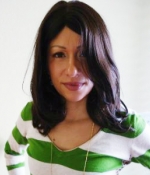
Rebecca Padnos Altamirano, MA ’01 (STEP), co-authored a book, Be The Change: Reinventing School for Student Success, with GSE emeritus professor Linda Darling-Hammond, Nicky Ramos-Beban, MA ’92, PhD ’14, and Maria Hyler, PhD ’07. The book chronicles the story of building East Palo Alto Academy (EPAA), a charter school, through the lives of five students. Rebecca was one of the founders of EPAA, where she served as both teacher and administrator, developing academic programs and partnerships, including the Early College Program. Though no longer in the classroom, Rebecca says that she is applying lessons learned from starting a school from scratch to another partnership, Tangelo, an innovation lab where she leads product development teams who deliver mobile applications that focus on health and well-being, education, recycling and connecting people and cultures. Rebecca says it was her recent pleasure to serve on the committee that launched the Stanford GSE Alumni Excellence in Education Award.
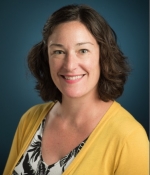
Megan Cotugno, MA ’03 (Policy Analysis and Evaluation), writes: “I am an associate survey director in the RAND Corporation's Survey Research Group, where I have worked since finishing my degree. In that capacity, I oversee primary data collection for a variety of RAND research projects, utilizing an array of survey methodologies. I am currently managing the eighth wave of follow-up with a cohort of participants from a voluntary, after-school drug prevention program that was administered in middle schools; the participants are now freshmen in college. Outside of RAND I am very active in the lives of my sons, ages 6 and 4, and am heavily involved in my synagogue, working on the fundraising and events team and serving on the preschool parent committee. My husband, Peter, was recently promoted to project executive at the commercial general contractor where he has worked for 15 years, and we celebrated our 11th wedding anniversary last September.”
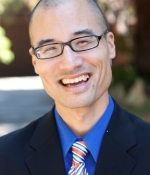
Frank Kobayashi, MA ’03 (Admin. & Policy Analysis), writes: “Since 2013, I have been serving as the dean of the American River College Natomas Education Center. The center serves over 3,700 students per semester. As the dean, I oversee all aspects of the center including: instruction, student services and administrative services. I provide leadership to over 130 faculty, ten staff and 40 student employees. In October, I was selected by the Sacramento Business Journal as one of the region's 40 Under 40.”
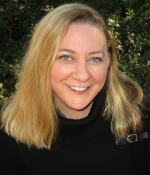
Beth McKeown MA’03 (Social Sciences Education), writes: “My master’s degree catapulted my career from teaching kindergarten and first grade into higher education when I landed jobs in student affairs at Princeton and Tufts. I’m excited to be back at The Farm! Today, I am the assistant dean for curricular and academic support in the School of Humanities & Sciences at Stanford. I am responsible for: shepherding departments and programs through curriculum review, learning outcomes accreditation assessment, and the initiation and termination of degree programs. Additionally, I provide student services-related counsel and support to departments and programs, advise on student concerns and policy interpretation, and investigate student academic grievances. I have also enjoyed serving on judicial affairs panels and being a pre-major advisor to freshmen and sophomores.”

Jessica Mendoza ’02, MA ’03 (Social Sciences Education) earned her Masters degree in 2003 and has been schooling the sports world ever since! ESPN.com reported that in January Jessica was named one of the voices of ESPN’s Sunday Night Baseball coverage. NCAA.com reported that Jessica made sports history last October when she became the first female analyst to call an MLB postseason game and the first woman in the booth for ESPN MLB coverage. You can follow her on twitter at @jessmendoza and Instagram at jessmendoza2. You can also visit her website to learn more about her softball accomplishments, including her Olympic and World Cup medals.
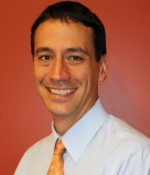
Devin Beliveau, MA '05 (STEP), was honored in November by the National Council for the Social Studies with its NCSS Award for Global Understanding. Devin was recognized for his notable contributions in helping students increase their understanding of the world. Devin is a social studies teacher at Samueli Academy in Santa Ana, Calif. where he implements the “Go Global – Increase the Peace” curriculum. He uses a plethora of Internet-based communication tools to acquaint students with different cultures and enable collaboration with students in other countries. In his words, “This facilitates citizen-to-citizen diplomacy allowing students to humanize each other by consulting each other directly as primary sources.”
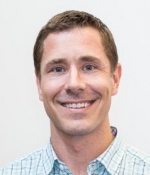
Joel Constable, MA ’06 (POLS), wrote that he leads people development at Pinterest. He noted, “I focus on developing world-class leaders and helping scale learning and development with the rapid growth of the company. I am excited about working with smart, motivated people who are trying to build an amazing product and company.”

Elena Tindall, MA ’06 (POLS), writes, “I am lucky enough to still be living in Palo Alto, putting my POLS systems-transformation education to good use.” Elena is a project manager for the Santa Clara County Department of Mental Health’s Primary Care Behavioral Health Integration project. She explains that her project brings depression screening to the underserved in multiple languages, and connects them to clinically and culturally appropriate behavioral health services. She noted, “It is challenging and very exciting to be at the nexus of the Affordable Care Act, and the revolution of bringing the mind and body back together again, focusing on prevention and early detection.”
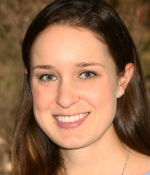
Anna Stone, MA ’08 (POLS), writes: “I have been happily employed at Stanford since graduating from the higher education POLS track in 2008. After nearly six years working in the Student Life Office at the Graduate School of Business, I am now the assistant director of new student programs in Undergraduate Advising and Research. My primary responsibilities are managing new student orientation for 1,700 incoming freshmen each September and advising Frosh Council—the student government for the freshman class. My job is extremely fulfilling; I love supporting students' transition into college and the first-year experience more broadly. I also got married to my college sweetheart of 12 years last June!”
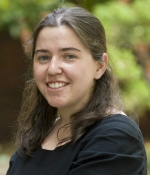
Daphna Bassok, MA ’03 (APA), PhD ’09 (Economics of Education), assistant professor of education and public policy at the University of Virginia and associate director of EdPolicyWorks, is co-author of a paper — “Is kindergarten the new first grade?” — published Jan. 6 in the journal AERA Open. The study showed that kindergarten teachers in 2010 have much higher expectations of their students than in 1998 and their classrooms resemble first grade classes from the ‘90s. The researchers found that there was substantially less time spent teaching the arts and increased time instructing in math and reading with teachers in 2010 more likely to think students should leave kindergarten knowing how to read. The study was promoted in a news release by AERA and covered in a story by NPR.
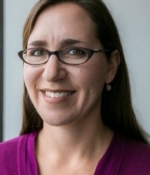
Lara Fox, MA ’09 (POLS), recently marked her second anniversary as founding executive director of uAspire Bay Area. She wrote that she is partnering with other uAspire team members to “ensure the impact of the Bay Area chapter of a national non-profit that is a field leader in removing the financial barriers to college access and success.” The group has a long-standing commitment to helping students and families navigate the complicated college financing system. Lara said that she is excited about the opportunity to make uAspire’s expertise available to thousands of California youth each year. Lara added, “When not working, I continue to enjoy hiking [Bay Area] foothills, writing creatively, and spending time with people I love.”
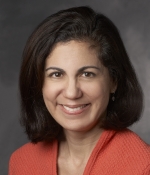
Martha Castellon, PhD ’10 (Educational Linguistics), was named Palo Alto Unified School District’s first-ever equity coordinator. According to an article in the San Jose Mercury News, the new position was deemed a top priority by the district's Minority Achievement Talent Development Committee, which was tasked with proposing ways to address the district's achievement gap. Her job will be to implement other committee recommendations and be a liaison to historically under-represented families. She previously was the executive director of Stanford GSE’s Understanding Language Initiative. For more about Martha's career, please see the profile that was published in the Palo Alto Weekly.
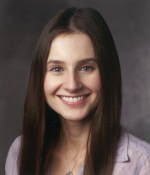
Kate McKinney, MA ’11 (POLS), wrote: “I loved my experience at the GSE so much that I decided not to leave! I’m working at the GSE as the Doctoral Programs Officer, which primarily involves advising PhD students and postdocs on university policy, managing doctoral student and postdoc funding, and overseeing student degree progress. I transitioned to this role after starting in GSE admissions right after POLS, where I recruited prospective students, led event-planning for academic services, and managed visiting scholar and lecturer appointments. I really enjoy forming relationships with and serving as a resource for the students, and I love the fact that I’m still very connected with the GSE community and Stanford as a whole. I learned so much during the POLS program about student development and higher education leadership through my classes, and I gained invaluable Stanford work experience through my internship at Stanford’s Overseas Resource Center. These experiences were instrumental in finding my job. I’m so grateful that POLS provided such a critical launching point for my career, as well many friendships and memories that I continue to cherish.”
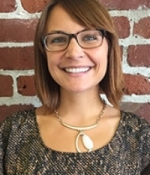
Rachel Rosen, MA ’11 (POLS), writes that in July she joined the Oakland-based National Equity Project, an educational nonprofit where she coaches and facilitates professional development to school district leaders, principals, teacher leaders and teams. She writes, “NEP's mission is to dramatically improve educational experiences, outcomes and life options for students and families who have been historically underserved by their schools and districts. I hold the deep belief that people have the capacity to solve their own problems, given the right conditions, and my work as a coach and facilitator is informed by adult learning theory and keeping that belief in mind." Rachel’s POLS program was sandwiched between roles in Oakland Unified School District as an administrator at Elmhurst Community Prep and a teacher at Castlemont High School. Reflecting on her Stanford experience she writes, “It deepened my understanding of the educational landscape and allowed me to see systems change through a different lens. At Elmhurst, I held a school change vision, recognizing the need for adaptive (versus technical) leadership. My work at Elmhurst was informed by my strongly held belief that all students deserve a quality education. Now, in my work at NEP, I continue to hold that belief highly, and I consider it an honor and privilege to partner with leaders who want to make good on that promise on behalf of their students, families and communities.”
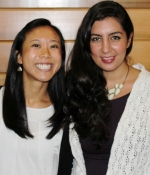
Emily Lee, MA ’12 (STEP) and Nanor Balabanian, MA ’13 (STEP), co-authored the the curriculum “Honoring Our Families Immigrant Narratives,” which was published in the Culturally Responsive Teaching section on Edutopia’s website. Emily and Nanor teach ninth-grade English and history, respectively, at Everest Public High School in Redwood City, Calif., and they teamed up with the nonprofit group Made Into America to teach their students how to chronicle the immigration stories of family members. Their detailed account of the techniques they used offer useful step-by-step strategies that may be easily adapted to other purposes. You can read this and other posts on Edutopia.
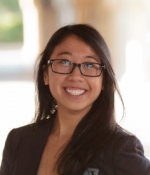
Anna Ly, MA ’12 (LDT): 2016 is starting off on an exciting note for Anna who has been named one of the young innovators in the 2016 class of 30 Under 30 in Media by Forbes / Entrepreneurs. She was also named a Woman of Influence for 2016 by The New York Business Journal. Anna is senior manager of business and creative ventures for Sesame Workshop and is responsible for designing and developing innovative learning experiences for children and their families.
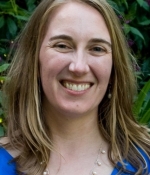
Karen D. Thompson, PhD ’12 (Educational Linguistics): See the item for Ilana Umansky, PhD ’15, about a policy brief that the two co-authored with colleagues about improving education for English Learners in California.
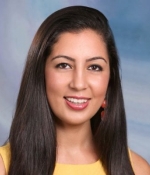
Nanor Balabanian, MA ’13 (STEP), pictured here. See the item for Emily Lee, MA ’12, to read about Nanor’s work on a new curriculum, described in their Edutopia blog.
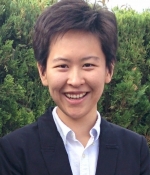
Angela Wu, MA ’13 (POLS), is assistant director of arts and cultural programming at the Davis Center at Williams College. The Davis Center is the social justice and identity center dedicated to making learning opportunities more equitable. She wrote: “I’m particularly excited about some of the initiatives that I have been working on to get students more face time with artists. There are still a lot of barriers as to why many students may feel that it is impossible to pursue a life in the arts, but I’m happy to do my part in chipping away those barriers.”
Angela got her start in higher education during her POLS internship in the Stanford Diversity & First Gen Office through the Student Affairs Higher Ed Fellows Program.
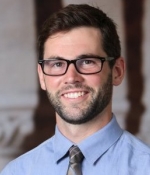
Devin Corrigan, MA ’15 (ICE), authored “5 Takeaways on Educating California’s English Learners” for the Education Week blog On California, where he pointed out actions that the state can take to improve opportunities for English learners (ELs). His piece draws from a policy brief published by Stanford-based Policy Analysis for California Education (PACE), which recommended major changes in policy and practice in the education of EL students.

Ilana Umansky, PhD ’15 (Sociology of Education) co-authored the brief “Improving the Opportunities and Outcomes of California’s Students Learning English: Findings from School District-University Collaborative Partnerships,” published by Policy Analysis for California Education (PACE) with Sean Reardon, Kenji Hakuta, Karen D. Thompson, PhD ’12 (Educational Linguistics), Peggy Estrada PhD ’87 (Psych Studies Education), Claude Goldenberg, et al., 2015. The brief offers evidence of inequitable treatment of English Language Learners in California schools despite California and federal laws requiring that schools provide English Learners with targeted services to meet both English language and content learning goals. The brief recommends policy changes regarding classifying California EL students, data collection and expanding educational opportunities.
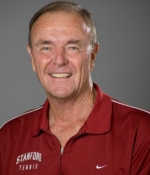
Richard (Dick) Gould, MA ’60, is celebrating 50 years at Stanford! He writes: “My 50th year in Stanford athletics: 38 as men's tennis coach; 12 as director of tennis. Thank you, GSE!” You can follow Dick on Twitter @dick_gould. The GSE last year published a class note about him that gives more detail about his career at Stanford.
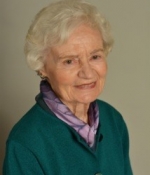
Mary (Kiki) Wilcox, PhD ’72 (CT&E), spoke Nov. 18 at Yolo Hospice center on the healing power of music with the elderly and those who have dementia. For 15 years Mary Kiki has used music as a way to reach the hearts of Channing House residents, a senior community in Palo Alto where she now lives. She wrote a book about her experience, A Song Just for Me: Stirred by Music to Conversation and Compassion (Fithian Press, 2014).
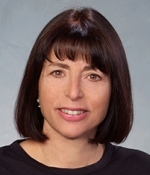
Diane August, PhD ’82, directs the work of the Center for English Language Learners at American Institutes for Research where she is a managing researcher. She writes: “It’s been more than 30 years, but I still appreciate how well the GSE program prepared me for the rest of my career which has been dedicated to improving educational policy and practice for English language learners. I have been fortunate to collaborate over the years with colleagues who teach in the GSE, notably Kenji Hakuta, Claude Goldenberg and Deborah Stipek so have never felt that I have totally left Stanford.”
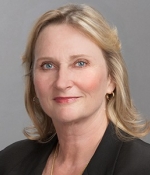
Jane Binger, EdD ’82, (Admin. & Policy Analysis), is executive director of the Sutter Health Research Enterprise where she leads research strategy development and execution. Jane writes, “Developing and leading leadership education, from learning systems and virtual job rotations to skills labs and coaching, with thousands of nationally-renowned researchers, clinicians, executives, board members and students, and executing strategy for premier, billion-dollar healthcare organizations have been my passions for the last 20 years.“ Her pro bono commitments include being a diplomat for UC Merced Foundation to help under-represented students enter college and educating students in Stanford medical school’s Center of Excellence in Diversity in Medical Education to become leaders in eliminating health inequities.
She adds: “I use learnings from the GSE, particularly Greg Jackson, Mike Kirst, Lewis Mayhew, and students, Jane Marcus, Charlotte Hanna, and David Murphy, every week. In particular, Dr. Mayhew honed my conceptual thinking—a cherished gift. Robert (Bob) Bernstein, MD, (Stanford BA, MA, MD) and I have been married 34 years now, and enjoy our four blessings daily—Jackie Bernstein Bernhelm, Jeffrey Bernstein, Catherine Lewis Bernstein and John Swisshelm Bernhelm.”
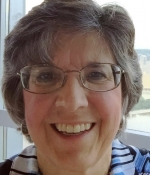
Toni Sulkowski, MA ’88 (Admin. & Policy Analysis), writes that she is considering becoming a certified principal mentor. She explains, “I want to become a principal mentor because God has blessed me with wonderful experiences and knowledge about the principalship, and I would like to pay it forward and help others to become accomplished administrators.” Toni was an elementary school principal at Peters Township School District, Pennsylvania, for 13 years. She noted that she is an adjunct instructor teaching instructional technology and principal certification classes at Waynesburg University, where she has worked since 2008. (She retired in 2010 from her position as director of technology at PTSD.) She also spends her time volunteering, travelling and reading.
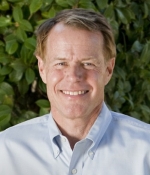
Ken Yeager, PhD ’91 (Social Sciences Education), informs us that he has been serving on the Santa Clara County Board of Supervisors since 2006. He has focused on comprehensive safety net programs and preventive health initiatives. A lifelong advocate for LGBTQ rights, Ken has worked to expand HIV testing, outreach for homeless LGBTQ youth, and health services for LGBTQ residents. During his tenure on the Board of Supervisors, he has also supported public transportation and environmental sustainability. He notes that he has remained involved in higher education policy since his graduation, having taught full time in the political science department at San Jose State University for 12 years. In addition, Ken served two terms as a trustee of the San Jose Evergreen Community College District, from 1992 through 2000, when he was elected to the San Jose City Council.
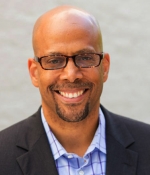
Jim (James H.) Shelton, MA/MBA ’93 has been elected a director of Graham Holdings Company, a diversified education and media company that includes Kaplan, Slate, television stations and firms in healthcare and other industries. Jim is chief impact officer at 2U.com and the former deputy secretary at the U.S. Department of Education. [See June 2015 and October 2014 Class Notes.]
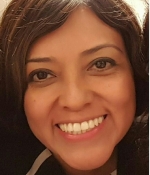
Leyda Garcia, MA ’96 (Language, Learning & Policy), is principal at UCLA Community School, a K-12 school in the Koreatown neighborhood in Los Angeles. She writes: “We are in partnership with LAUSD and UCLA. [We are] truly trying to redefine public schooling for families, students and all the adults that work at the school.”
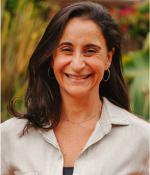
Abigail Falik, MA '01 (ICE), MBA [Harvard], is the founder and CEO of Global Citizen Year. She writes: “It is a nonprofit, social enterprise on a mission to make it normal to choose a bridge year after high school: an experience that builds self-awareness, global skills and grit [which are] the foundations for success in college and beyond. Graduates of the program use that bridge year as a launching pad and arrive at college, not burnt-out, exhausted, and disoriented, but with a set of burning questions that drive their education.” Reflecting on her Stanford graduate work she adds, “My Stanford ICE monograph was an early blueprint for Global Citizen Year. The idea was already cooking but I, and the broader educational context, needed another decade to ripen. Today, as the momentum builds, it feels like an idea whose time has come." In recognition of her work, she has received several awards including being named an ASHOKA Fellow (given to social entrepreneurs who have pioneered innovative solutions to social problems to effect positive change.)
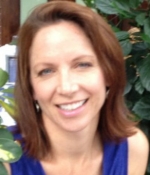
Britt (Brittany) Jung, MA ’01 (Admin & Policy Analysis), reports that she recently became group leader for technical assistance and school support in the DOE’s Office of Elementary and Secondary Education in Washington, D.C. where she has worked for over 14 years. Acknowledging that her new job sounds somewhat obscure, she explains, “Government agencies use the term ‘technical assistance’ to mean everything from a five-minute phone call with a state official to a multi-year, strategic effort to change how a state addresses the needs of underperforming schools. In short, our technical assistance grantees are consultants. Currently on our radar is the Testing Action Plan which is a topic that most people can relate to. My group is what I would call a ‘turnaround situation.’ I never thought of myself as destined for a life in government, but public service is certainly part of what called me to teaching to begin with and working through the challenges in a group that is under transition highlights, for me, the critical need for strong government leaders and managers.”
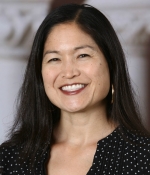
Kari Kokka, MA ’01 (STEP), is back on the Farm! She writes: “I am working at the Stanford Center for Assessment, Learning, and Equity where I get to apply what I learned while teaching math from 2001 to 2011 at Vanguard High School, a performance-based-assessment school, in New York City.” She adds that she is “also working on finishing my doctorate at the Harvard Graduate School of Education, hopefully within the seven year timeframe!” She would like to invite the GSE community to the seventh Creating Balance in an Unjust World Conference on Mathematics Education and Social Justice at Mission High School in San Francisco, January 15-17, 2016.
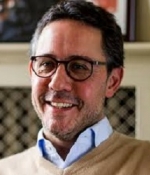
Batuhan Aydagul, MA ’02 (IEAPA), informs us that he is director of the Education Reform Initiative, a non-governmental, education think-and-do-tank in Istanbul, Turkey. He writes: “I am back at ERI after running an independent campaign for national parliament with an education-specific agenda in the first half of 2015. This campaign was, for me, an attempt to advocate for and pursue further progress in quality public education for all children. At the end, I lost at the ballot but it was an invaluable and very challenging experience to be out there, making a case for public education and asking for votes. I’ll continue my efforts to build and communicate evidence-based arguments that also reach voter’s hearts.” For more about Batuhan’s journey since his time at Stanford, read this profile that appeared on the GSE website in 2014.
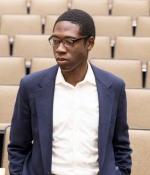
Travis Bristol MA ’04, PhD [Teachers College], was chosen to receive the first-ever Teacher Diversity Award, the American Association of Colleges for Teacher Education announced on Dec. 3. (For more info about it, please see this GSE story.) A research and policy fellow at the Stanford Center for Opportunity Policy in Education, he also was selected to deliver a talk (now available to watch on video) at the Oct. 18 symposium, Thinking Big About Learning, which is part of Stanford's ongoing celebration of its125th anniversary. Bristol is a graduate of the Stanford Teacher Education Program and a former English teacher in the New York City public schools.
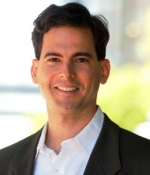
Eduardo Bricen͂o, MA/MBA ’07, was a keynote speaker at the iNACOL 2015 Blended and Online Learning Symposium in Orlando where he spoke on “Cultivating student ownership through growth mindset to develop world-class learners.” His presentation centered on the power of growth mindset to prepare students to succeed in school and life as they take ownership of their own learning and growth. His commentary on growth mindset was also featured on the KQED News webpage MindShift. He is co-founder and CEO of Mindset Works, a company that develops programs to help schools improve student motivation and learning. You can follow him on Twitter at @eduardobricen0.
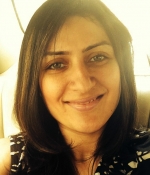
Vridhi Tuli, MA ’09 (LDT), is a freelance instructional designer who has developed curriculum for several media and entertainment entities in India, where she now lives. Vridhi credits her LDT program for teaching her state-of-the-art educational design principles that have opened exciting doors in her field. You can visit her website www.vridhituli.com.
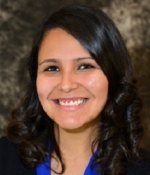
Irene Castillon, MA ’10 (STEP), is currently collaborating with Albert Camarillo, professor of history at Stanford, to plan an online portal where teachers will be able to access Mexican-American history curricula. She is also academic dean and a teacher of Mexican-American history at the Luis Valdez Leadership Academy in east San Jose, a charter school managed by the Foundation for Hispanic Education. In a recent interview published on the DOE’s White House Initiative on Educational Excellence for Hispanics website, Irene said, “I teach because education creates change; because I believe that education has the power to transform not just a student, but families, communities and societies.” She writes that she is also an MA candidate in the Educational Leadership Department at San Jose State University. She notes, “As a first-generation college graduate who shares a similar background to the students in east San Jose, I am especially excited about the possibility of growing and transitioning into the role of an administrator and leading by example in a community to which I feel such a close connection.”
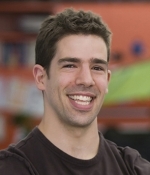
Dylan Arena, ’01, PhD ’12, received a “Research@Work” award during a Nov. 20 gala at Mountain View’s Computer History Museum. The winners were selected by EdSurge, a leading information and resource site for the educational technology community, and Digital Promise, a nonprofit research and education organization authorized by Congress to spur learning innovation. Arena and a colleague were being honored for the work of their start-up, Kidaptive. (For more info, please visit this story.)
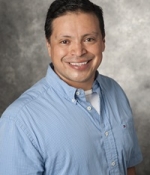
Diego Román, PhD ’14, assistant professor of education at Southern Methodist University, Dallas, co-authored a study that showed how science textbooks widely used in California appear to misrepresenting the science behind climate change as much weaker than it actually is. The findings were published in the journal Environmental Education Research and were also covered in the Guardian and San Francisco Chronicle, among other media outlets after the GSE communications office had a news release written and distributed. Román's partner in the study was K.C. Busch, a doctoral candidate in science education at Stanford Graduate School of Education. The investigation was launched while Román was completing his PhD at the GSE.
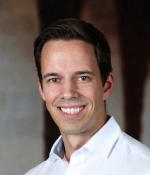
Dan Meyer, PhD ’15, was described as “perhaps the most famous math educator in America today” in a profile of him published Dec. 1 in the New Republic. “Meyer thinks technology can change the math classroom’s reputation as a dull, mystifying, and even traumatizing place,” writes the author. His TED talk, Math Class Needs a Makeover, has more than 2 million hits. Follow him on Twitter at @ddmeyer.
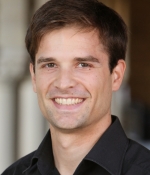
Bertrand Schneider, PhD ’15 (Education), writes: “In collaboration with the Transformative Learning Technologies Lab, I am currently studying the impact of Maker Spaces and Fabrication Labs on students' attitudes toward STEM subjects. We bring in high-schoolers from low SES backgrounds and teach them how to build innovative solutions to problems in their communities using rapid prototyping tools such as laser cutters, 3D printers and robotic toolkits. My current focus is on instrumenting those spaces with sensing devices to build new formative assessment tools. In short, our hope is to implement new kinds of project-based, making-activities in classrooms and develop ways to measure learning processes in those spaces in non-intrusive ways.” The GSE website published an article in 2013 about Schneider’s research into employing interactive learning technologies. There is also a summary online of the participatory systems he has devised to help students learn concepts of probability.
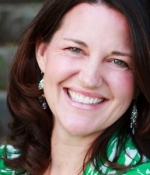
Lauren Ramers, MA ’97 (STEP), informs us that she is an academic coach at O'Farrell Charter School in San Diego where AVID, a college preparedness program, is practiced schoolwide in grades K-12. As an AVID teacher she is dedicated to promoting college readiness for all students and particularly underserved and low-resourced populations and previously worked to that end in her role as director of professional learning at the San Diego, AVID Center. Internationally she has helped support AVID implementation in Australia and is collaborating with her Australian team to pilot an online professional development program there with hopes of making the program extensible to other countries in the future. (For more about Lauren and O'Farrell Charter, visit the school's website.)
Read about other alumni of Stanford Graduate School of Education in the latest Class Notes or by checking out the alumni home page.
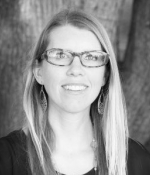
Megan Taylor, MA ’02 (STEP), PhD ’10 (Mathematics Education), writes: “I am the founder and CEO of Trellis Education, an organization developing a medical school-like model for STEM teachers in California that will unite student teaching, credential coursework, induction, and school-based professional development (currently separate experiences run by different entities) into a cohesive trajectory of preparation and support. Trellis takes people from their decision to be a teacher through their fifth, full-time teaching year, granting them a credential, master's degree, and board certification, and supporting them with six years of targeted mentoring to ensure [that] they become effective teachers who stay in the profession.” Megan informs us that she is on leave from her faculty position at Sonoma State University as the visiting associate director of the Center to Support Excellence in Teaching at Stanford (CSET). She lives in San Francisco with her family. Follow her on Twitter: @ilovemath11
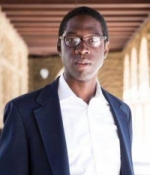
Travis Bristol, MA '04 (STEP), PhD [Teachers College], wrote an article, published in the October issue of The Kappan, about a professional development program he established in Boston for male teachers of color.
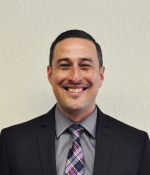
Jeffrey Camarillo, MA ’05 (STEP), MA [SJSU], is beginning his second year as the principal at Luis Valdez Leadership Academy, a school he founded in 2014 in San Jose. It predominantly serves Latino students who will be the first in their families to go to college. Jeff writes: “My team, many of whom are also STEP alums, successfully completed their inaugural year at LVLA by creating a vibrant, culturally-empowering, college-going culture for their students and families. LVLA completed its inaugural year without a single suspension or expulsion, averaged a 97 percent average attendance and took over 50 freshmen to overnight field trips to colleges and universities throughout California and the nation.” In addition to birthing a new school, Jeff and his wife, Josephine, are celebrating the recent birth of their first son, Jaxson Albert.
Read about other alumni of Stanford Graduate School of Education in the latest Class Notes or by checking out the alumni home page.

Brian Kaplan, MA ’07 (STEP), recently joined Educate Girls Globally as vice president of growth, strategy, and “happiness.” He notes, "While my functional role is strategy and growth, my primary role is to bring 'happiness' to the donors and girls we serve." He writes: “EGG transforms the lives of girls growing up in tribal villages across India. We partner with the government getting a mandate to work directly with the community and helping them to develop action plans for improving their school and girl's education.” He explains that a core element of the program is the Girls Parliament, comprised of all girl students, and a student-elected leadership cabinet which advocates for issues of concern. He notes that in one village the girls cabinet took on the issue of child brides and successfully prevented the marriage of a local seven-year-old girl.
He adds: "I credit my STEP experience with teaching me that every individual, no matter what the circumstances, has an innate desire to learn. It's extraordinary to see these girls, who have had so little support, thrive when given the chance. Next year, we will help more than 70,000 girls see a brighter future for themselves through empowerment, self-advocacy, and better education. We have a strategic plan to expand the program dramatically and serve more than one million girls by 2020. We have had amazing results in places where, before we begin, the typical lifetime education of girls has been just four years.” To help or learn more you can contact Brian at brian.kaplan@educategirls.org.

Piya Sorcar, PhD ’09 (Learning Sciences and Technology Design), was featured in a story in Stanford Report about TeachAIDS, the nonprofit she established as a graduate student to disseminate culturally-sensitive education materials about HIV/AIDS to youngsters worldwide. The organization recently moved into new digs in downtown Palo Alto.
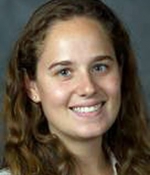
Rachel Fishbein, MA ’10 (POLS), writes, "I manage the Quest for Excellence programs and educator support for QuestBridge. The nonprofit is based in California, but I work remotely from New York City. I'm always looking to connect with those in the college access/student support sphere!” Rachel’s interest in student support took root while at Stanford where she interned under Snehal Naik in the Office of Student Activities and Leadership.
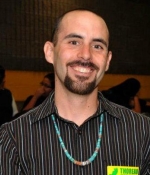
Gavin Sosa, MA ’10 (POLS), is a founding member and director of operations at Dream Diné Charter School. Gavin describes his school, which is entering its second year, as “a dual-language, place-based elementary school on the Navajo Nation,” and says that it’s “dedicated to reconnecting Diné (Navajo) children to their language, culture and community.” The school strives to serve as an example for indigenous education throughout the southwest and is the first charter school on the New Mexico side of the Navajo Nation.
Gavin is also an avid runner and placed second in the 2015 Shiprock Half Marathon in New Mexico this past May.
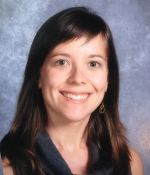
Cara Johnson, MA’12 (POLS), writes that she is the managing director at the nonprofit Oakland Kids First where she oversees peer academic mentoring, after school youth leadership, and family engagement programs. She finds that at this job she often draws from what she learned while at Stanford about nonprofit management, school-based decision-making, instructional leadership, evaluation, curriculum design and inequity in public high schools. She says, “I often joke with my former classmates that I use what I learned through POLS every day at work.” Cara plans to move closer to her family in Missouri soon, and welcomes any recommendations and connections from Stanford alumni about job opportunities in the St. Louis area.
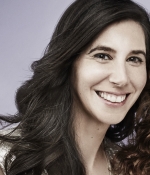
Dara Kosberg, MA’12 (POLS), writes: “Since graduating, I’ve been working on start-ups both in the nonprofit and for-profit sectors. At Curious.com, an education technology company in Silicon Valley, I partner with teachers all around the world to build our content offerings. I’m also the Chief Community Builder for The Dinner Party, a new nonprofit that is quickly building momentum — by far the most rewarding thing I've ever been part of. We're a community of young adults who’ve experienced a significant loss and now have almost a hundred groups meeting across the country and internationally. Lastly, I joined the board of The Ed Fund of West Contra Costa, putting my POLS experience to good use while working on their organizational strategic plan to increase college access. I still hang out with many POLS alums — a nice perk of living in the Bay Area!”
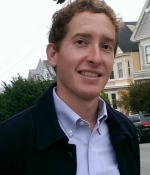
Michael Mirelman, MA’12 (POLS), informs us that he is beginning his fourth year teaching Spanish at East Bay School for Boys in Berkeley. He writes: “This will actually be my first year, ever, teaching sixth-grade Spanish, and I can't wait. I joined EBSB in its third year as a school, and we have seen amazing growth as a school and a community.” He notes that the school has grown to 100 middle school students and attributes his success to his Stanford studies, “The POLS program gave me the tools and confidence to be a leader in the school, to develop a rigorous curriculum and to be a great teacher. Our school is sort of like a mini-Stanford for middle school boys in the East Bay. Check us out at www.ebsfb.org.”
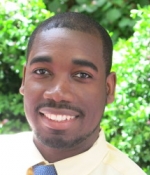
Emmanuel Fortune, MA’13 (POLS), informs us that he transitioned from his role in private philanthropy at Deloitte Consulting to become the founding director of College Readiness and Success at the Flamboyan Foundation, a private foundation focused on family engagement within Washington, D.C. public schools. He is also a national board member of the college access program, College Summit. He notes that after completing his MA he worked on human capital and organization strategy in a number of industries including high-tech, energy and finance. Emmanuel attended Stanford with his fiancée, Rachael Tutwiler, MA’13 (see below.)
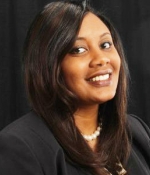
Rachael Tutwiler Fortune, MA’13 (POLS), writes that she is excited to begin the next chapter of her career in the Washington, D.C. region where she lives with her husband, Emmanuel Fortune, MA’13 (POLS) and son, Nicholas. She recently accepted a position as director of alliance engagement at America’s Promise Alliance where she will manage the GradNation State Activation Initiative in collaboration with Pearson, a three-year initiative focused on increasing high school graduation rates to 90 percent.
She noted that she just completed a two-year Presidential Management Fellowship appointment at the U.S. Department of Education and a detail at the U.S. Department of Health and Human Services, where she advanced policy initiatives focused on vulnerable youth populations.

Magdalena Gross, PhD '14 (International Comparative Education), recently joined the faculty of the Department of Education at Brown University as director of its history/social studies Master's program. Here’s a story about a course she’s offering in her first semester.
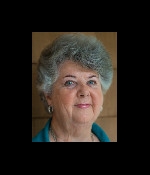
Neal (Nicki) McMahan ’64, MA ’65, writes: “Stanford gave me the credentials and foundation to think about education in new ways, and this became the springboard for creating the Chartwell School, which I co-founded in 1983. The school [in Seaside, Calif.] provides the underserved 20 percent of students with language-based learning differences the tools needed to succeed. Dyslexia was an unfamiliar concept and both diagnosis and remediation were extremely difficult in the beginning. We have come to realize that the unique and visionary ways in which these students think will benefit all of us in our increasingly complex world.” Today, Nicki is a trustee emerita at Chartwell.
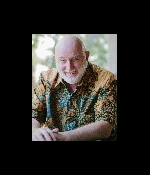
Donald Sharpes, MA ’68, PhD [Arizona State], informs us that he is a senior visiting fellow at Cambridge University and professor in the Emeritus College at Arizona State University, after working as a research associate at Stanford and teaching at a number of other universities over the past five decades. His CV lists 20 books and some 240 articles he has authored, as well as a plethora of awards, including five Fulbright scholarships and a Lifetime Achievement Award in 2008 from the International Studies Special Interest Group of the American Educational Research Association.
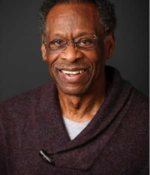
Leonard Beckum, PhD ’73 (Psych. Studies), shares that he recently became a grandfather for the fourth time and that his joy and love for his grandchildren give him additional motivation to make the world a better place. Leonard continues to serve as associate vice president for academic affairs and professor of psychology at Palo Alto University, where he developed the cultural competence program that has been used in preparing PhD students at PAU, as well as in the PAU-Stanford PsyD consortium. Over the course of his career, he has held leadership roles at several other higher education institutions including City University of New York and Duke University. He also taught high school and was a San Francisco police officer. He writes, “I am especially proud of my work with South Africa in 1991 to plan for affirmative action and for being selected to serve on the [2002-2003] Alameda County Grand Jury.”
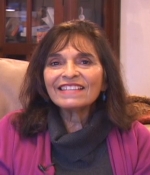
Rita Sanchez ’72, MA ’73, MA ’74 (English), is working to publish a new book, A Chicana Tribute: The Stories of Fifty Chicanas by Fifty Authors, which will acknowledge the courage and dedication of Chicana women who are civil rights activists fighting for the betterment of women in the Chicana community. She is a professor emerita at San Diego Mesa College.
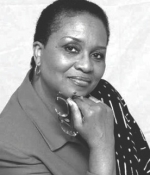
Joyce Elaine King ’69, PhD ’74 (Social Sciences Education), just completed her term as AERA president. She’s a professor in the College of Education at Georgia State University, where she holds the Benjamin E. Mays Endowed Chair for Urban Teaching, Learning and Leadership. Her fourth book, “Re-membering” History in Student and Teacher Learning: An Afrocentric Culturally Informed Praxis, was published in 2014.
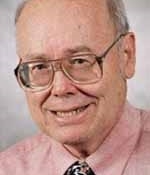
Gerald Fry ’64, PhD ’77 (International Development Education), is distinguished international professor in the Department of Organizational Leadership, Policy, and Development in the University of Minnesota’s College of Education and Human Development. Since coming to the school in 2000, he has held numerous leadership roles.
Gerald lived in Thailand more than 10 years and in 2013 co-authored a third edition of the Historical Dictionary of Thailand, the major reference work in English on Thailand. His work with the Thai people began with his Peace Corp volunteer experience during the 1960s, and he has continued working there on education and other projects since then. He helped to formulate Thailand’s National Education Act 1999 and contributed to the development of their Office for National Educational Standards and Quality Assurance. In recognition he received in 2011 an honorary doctorate in education for local development from a Thai university. He has led approximately 20 annual study trips to Southeast Asia including four Stanford Alumni group trips, and has pioneered an innovative international cooperative learning approach to enhancing the quality of short-term study abroad. He has received numerous teaching awards, and has published over 20 books and more than 100 articles.

Roberto Moreno Godoy, MA ’90 (International Development Education), continues to be at the forefront of education reform in Guatemala and throughout Central America. He reports that since stepping down as Guatemala’s minister of education in 2000, he has led the Universidad del Valle de Guatemala as its president. He has been working to ensure that at-risk, indigenous and underserved populations receive a quality education, and he has helped to develop partnerships between Universidad del Valle, the Ministry of Education and the private sector to improve teacher training; educational materials distribution; bilingual Mayan-Spanish instruction; and access to technology. Roberto came to Stanford on a LASPAU/Fulbright scholarship and is married to Regina Caffaro, MA ’89 (International Development Education). Regina is an education senior specialist in Guatemala’s Ministry of Education. They have two grown children.
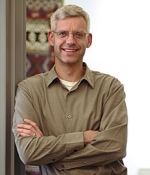
Charles (Chuck) Dorn, MA ’94, PhD [UC-Berkeley], is writing another book (under contract with Cornell University Press). It will present a “new history” of higher education, examining changes to U.S. colleges and universities, as well as American society, over the course of 200 years. Chuck’s first book, published in 2007, was American Education, Democracy, and the Second World War; it examines the ways that educational institutions in the United States, from nursery schools through universities, grappled with the exigencies of WWII.
Chuck earned his PhD in 2003 from UC Berkeley and is currently associate professor and chair of the education department at Bowdoin College in Brunswick, Maine. Previously, he taught high school social studies in Maryland, California and Morocco and served as a master teacher at Stanford’s summer teaching program. He has received numerous grants and awards, including a Fulbright Scholar Award to the University of Cape Town in South Africa.
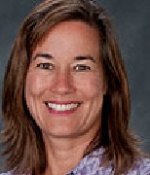
Pia Lindquist Wong, PhD ’94 (International Development Education), writes: “I left Stanford determined not to join the ranks of academia, but I soon found the perfect position for me—professor in bilingual/multicultural education at Sacramento State and have been loving it ever since! I work with a very smart, hard-working and innovative group of teacher educators, and we partner with local public schools who are eager to implement new practices related to teaching English learners, students with special needs, and students in poverty. Being in the state capital has its perks. I served as co-chair of the Commission on Teacher Credentialing’s Teacher Advisory Panel and will soon begin a term as co-chair of the CTC's Committee on Accreditation.
“Working with Martin Carnoy, Milbrey McLaughlin and Hank Levin at Stanford provided excellent preparation for this balancing act of teaching, research, policy work, activism and fun.”
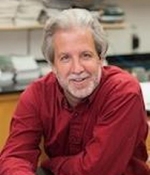
Adam Winsler, PhD ’94 (Psych. Studies/Child Development), is professor of applied developmental psychology and associate chair of graduate studies in George Mason University’s psychology department. He is also editor-in-chief of the Early Childhood Research Quarterly.
Adam’s research focuses on the development of young children in the areas of: bilingual language acquisition, early childhood education and school readiness for ethnically diverse children in poverty. He’s studied private speech and self-regulation in typically developing children and children with ADHD or ASD and has also explored the self-regulatory benefits of early childhood music and dance/movement programs. Adam is an author of 70 journal articles and two books including Private Speech, Executive Functioning, and the Development of Verbal Self-Regulation published in 2009 by Cambridge University Press.
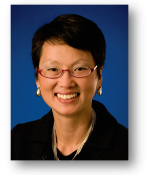
Van Ton-Quinlivan, MA/MBA’95 is vice chancellor of workforce and economic development of California community colleges, supporting career education across the system’s 113 campuses. Appointed by Gov. Jerry Brown, she has focused on Doing What MATTERS for Jobs and the Economy, a framework that bolsters sectors important to California’s 15 regional economies. Her work has contributed to the passage of two legislative bills that fund California’s push to create jobs, promote relevant career pathways, and foster stackable credentials.
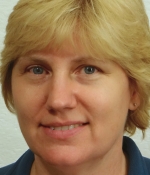
Angela Campbell ’92, MA ’96 (STEP), posted a brief statement on the Education Trust website in January about her 20 years of teaching in Southern California and what drew her to John Francis Polytechnic Senior High School in Sun Valley. “I chose this location because I speak Spanish and wanted to help bridge gaps for English Language Learners,” she explained later. Angela holds teaching credentials in biology, chemistry and physics and is National Board certified. She is a science fellow for her district and science department chair and chemistry lead. She also writes about other milestones: “In 2013 I was selected as a semifinalist for the Fishman Prize for Superlative Classroom Teaching. [In 2014] I worked with a team of colleagues on a policy paper about teacher compensation through Educators 4 Excellence and was selected to participate in an international summit on teacher professional development that was held by the Sutton Trust and the Bill and Melinda Gates Foundation in Washington, D.C. I have two amazing and talented daughters, ages 10 and 12.”
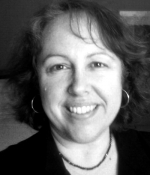
Lisa Petrides, PhD ’96, founder and CEO of the Institute for the Study of Knowledge Management in Education, tweeted on Aug. 4 how ISKME joined with more than 90 other groups to call on the White House to include Open Education Resources in the government’s national open resource action plan.
An international researcher and thought leader in the field of open education, Lisa and ISKME launched OER Commons, a comprehensive digital “public” library of open educational resources, in 2007. Today, OER Commons contains over 100,000 free and readily accessible resources from more than 400 content providers across most subject areas, enabling K-20 educators worldwide to access free high-quality learning content. In recent years, she pioneered technological innovations that help states, districts and teachers tap into high-quality, curated, open-content aligned with Common Core and Next Generation Science Standards.
In 2009, she established the Big Ideas Fest, an annual event that identifies innovative trends and solutions for key challenges in education.
Not surprisingly, she describes herself today (on Twitter @lpetrides) as “One part researcher, two parts social entrepreneur and three parts open advocate.”
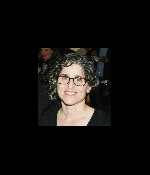
Abby Rovner ’93, MA ’98 (Admin. & Policy Analysis), is the executive director at Horizons at San Francisco Friends School. In this capacity, she recently launched Horizons, a public/private partnership that addresses the achievement and opportunity gaps of high-need elementary students in San Francisco’s Mission neighborhood and surrounding areas. The program provides students with early literacy support and hands-on academic learning, as well as enrichment activities. Prior to her work with Horizons, Abby initiated and ran the San Francisco chapter of the "I Have a Dream" Foundation. She has devoted her professional energies over the past 15 years to providing enrichment and leadership opportunities, academic support and college access programs for underserved youth.
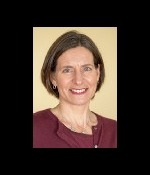
Jeannette Renee LaFors ’91, MA ’92 (STEP), PhD ’04 (Admin. & Policy Analysis), moved this summer to Santiago with her husband Matt Kelemen, PhD ’01 (Admin. & Policy Analysis), to support education reform efforts in Chile and experience the world from a different perspective with their children Dylan (12) and Adela (9). Prior to the move, she was the director of equity initiatives at the Education Trust–West in Oakland, advocating for the high academic achievement of all students, particularly those of color or living in poverty.
She earlier served as vice president of instruction at Envision Schools, a charter management organization in the Bay Area focused on helping students become the first in their families to go to college.
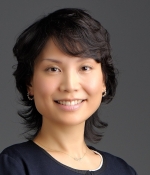
Lin Kobayashi, MA ’05 (ICE/IEAPA), is celebrating the first anniversary of the International School of Asia Karuizawa (ISAK) which she founded in August 2014. ISAK is Japan’s first international boarding high school that aims to educate the next generation of transformational leaders who explore new frontiers for the greater good of Asia and beyond. To ensure school diversity, 70 percent of their students come from outside Japan and receive needs-based scholarships.
Lin is driven by her passion to educate and empower young people with the opportunity to be successful, well-rounded citizens. The school’s curriculum incorporates design-thinking methods, which were developed in collaboration with Stanford’s D.School (Hasso Plattner Institute of Design at Stanford) and IDEO Japan (a global design firm.) In recognition of her efforts, Lin received two Nikkei awards for Changemaker of the Year in 2013 and Woman of the Year in 2014. She also now serves on several government education committees.
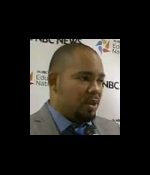
Julian Vasquez Heilig, PhD ’06 (Admin. & Policy Analysis), professor of educational leadership and policy studies at California State University - Sacramento, co-authored a paper, “Understanding Universal Vouchers at Urban Public School Districts in Santiago de Chile: Educational Administrators’ Responses to Choice,” published in this summer’s issue of Multidisciplinary Journal of Educational Research. The findings show that while striving to enhance school choice, such programs exacerbate inequality and stratification.
The paper continues Julian’s efforts to examine quantitatively and qualitatively how high-stakes testing and accountability-based reforms and market reforms impact students, particularly poor students of color.” His research also examines issues of access, diversity, and equity in higher education. His work has been cited by the New York Times, Washington Post and other outlets. He blogs at Cloaking Inequity, and you can follow him on Twitter @ProfessorJVH. He also serves as director of Sacramento State’s doctoral program in educational leadership.
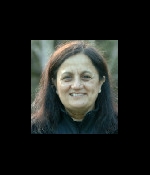
Neeru Khosla, MA ’06 (Curriculum & Teacher Education), is executive director of CK-12 Foundation, a nonprofit she co-founded that develops and curates high-quality, K-12 STEM content. She is committed to ensuring equity for all students and open access to high-quality content and resources. Neeru says, “If we believe that all students have an inalienable right to learn, then we must ensure access to educational resources and information.” To that end, CK-12’s resources are aligned to state and national standards, can be translated to any language, and ported to any device, anytime, anywhere, and are free.
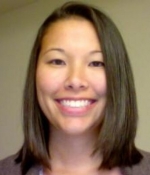
Jenny Maehara ’06, MA '07 (STEP), is starting her second year as elementary literacy coach for Santa Clara Unified School District. In this role, she mentors teachers and principals, designs professional learning, and helps sustain the literacy vision for the district. She writes, “During summers, she and a team of her colleagues, including Elizabeth Hepworth Stavis ’04, MA '06 (STEP), lead literacy institutes in several Bay Area school districts.” Recently, as an advisory board member of Intrepid Philanthropy Foundation, she helped develop and launch the LIGHT Awards, a grants program providing teams of teachers up to $30,000 over two years to fund the professional development experience of their dreams.

Catherine Harrell ’09, MA ’10 (Learning, Design & Technology), is returning to the Farm! Catherine writes: “Since my days in the LDT program, I've been working in software as a user experience designer, creating interfaces at Autodesk, and most recently leading a design team at Amazon Web Services. Now I'm getting ready to go back to Stanford in the fall, to pursue an MBA at the Graduate School of Business. Can't wait!”
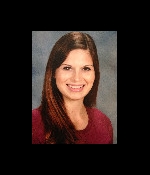
Kerry McNaughton, MA ’10 (STEP), just completed teaching summer school and moved to Seattle with her fiancé where she will teach sixth-grade science. From 2013-2015 Kerry taught seventh and eighth grade science at Columbia Middle School, which has a partnership with STEP. As part of the program, she hosted 14 STEP teaching candidates in her classroom, mentoring them to see real-world connections between theory and practice. Kerry received several teaching awards and grants including the Wells Fargo Teacher Innovation Classroom Grant. She was selected to be the June Teacher of the Month by the Silicon Valley Education Foundation and Teacher of the Year at Columbia Middle School
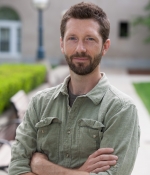
Jack Schneider, PhD ’10 (History of Education), is an assistant professor of education at the College of the Holy Cross in Worcester, Mass. Since graduating from Stanford, he has written two books: From the Ivory Tower to the Schoolhouse: How Scholarship Becomes Common Knowledge in Education and Excellence for All: How a New Breed of Reformers Is Transforming America’s Public Schools. He is currently completing a third book about how to measure school quality beyond test scores; through that project he has been working with the Massachusetts legislature to overhaul how schools in the state are evaluated. He is a frequent author of op-eds and blogs for Education Week at K-12 Schools: Beyond the Rhetoric. You can follow him on Twitter @Edu_Historian
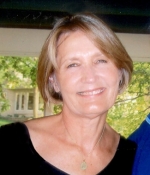
Mary Jean Montgomery, (Education) MA ’73, writes: “I recently completed serving 15 years on the State Board of Education for Iowa. In that capacity I also got to sit on the Iowa Public Television Board, help craft the Iowa Core Curriculum and chair some study committees for the National Association of State Boards. It was a great ride and helped me better understand the exciting issues explored by the GSE Advisory Council. I just concluded two terms on that council and was honored to help them launch their first alumni engagement group. Now that my husband and I are both retired, we plan to split our time between California and Iowa and enjoy our five grandchildren. This fall I will begin a five-year term on the Stanford Alumni Association Board of Directors.”
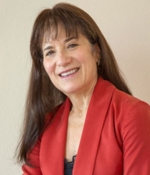
Janice Lynn Ross, (CTE) PhD ’75, has written a biography, Like a Bomb Going Off: Leonid Yakobson and Ballet as Resistance in Soviet Russia, published in January 2015 by Yale University Press. Yakobson was a brilliant and unconventional choreographer of ballet in Soviet Russia. A Washington Post review of the book notes, “By the time he died of cancer in 1975 at age 71, he had created 180 ballets for the Kirov, the Bolshoi and his own small troupe.” According to the book summary on Amazon.com, “He used dance to celebrate reinvention and self-authorship — the freedom of the individual voice as subject and medium. His ballets challenged the role of the dancing body during some of the most repressive decades of totalitarian rule.” The book has also been reviewed in the New Yorker, New York Times and other publications, and it has been hailed by such luminaries of the dance world as Mikhail Baryshnikov: “I salute Janice Ross for allowing us to peek behind the curtain of Yakobson’s extraordinarily creative life,” Baryshnikov says. “His personal struggle for freedom — in life and in his art — was exemplary knowing the time and the place in which he fought to make his dreams and ideas into theatrical reality." Janice Ross is a professor in the Department of Theater and Performance Studies at Stanford.

Derek Miyahara, (APA) MA ’86. After leaving his Stanford PhD program to marry Joanne Tengan Miyahara, (STEP) ’91, Derek took a job at The Learning Company where he was promoted to vice president of research and development. After the company was acquired by Mattel, Derek followed his passion to personally impact the lives of children. Today he is a teacher and social studies department chair at Los Altos High School in Los Altos, Calif., where he also teaches AVID and serves as WASC Coordinator.
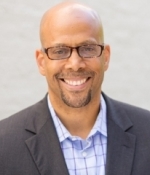
Jim (James H.) Shelton, (MA/MBA) ’93, has taken a new position as chief impact officer at 2U.com, a company that provides colleges and universities with the infrastructure needed to attract, enroll, educate and support students in online degree programs. Jim is the former deputy secretary at the U.S. Department of Education. [See October 2014 Class Note.]
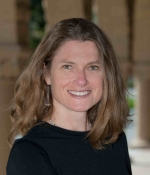
Mary Katherine Hofstedt, (Social Sciences, Education) MA’03, works with Stanford’s John W. Gardner Center for Youth and Their Communities at the Graduate School of Education. Among her accomplishments, she co-developed the Youth Engaged in Leadership and Learning (YELL) curriculum, a resource that has been downloaded by thousands of educators and NGO leaders in more than seventy countries. In addition to her work with YELL, she helps to create community-based youth action research initiatives in the cities and towns neighboring Stanford. Her most recent projects include facilitating a coalition of youth and adult partners to form the new Youth Arts and Music Center in East Palo Alto, Calif.; supporting cross-sector data linking and strategic planning with a variety of local partner organizations in the Bay Area; co-founding the North Fair Oaks Youth Initiative in unincorporated San Mateo County, Calif.; and conducting an implementation study of the Art in Action program. She also guest lectures on youth development theory and practice, and volunteers with such organizations as Challenge Success, Full Circle Fund and the Earth’s Birthday Project, among others.
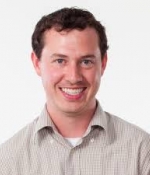
Robert Pronovost, (STEP - Elementary) MA ’07, is the STEM Lead Coordinator for the Ravenswood City School District in East Palo Alto, Calif. In conjunction with Stanford Graduate School of Education’s FabLab@School network of educational digital fabrication labs, Robert designed and initiated the Ravenswood Makerspace Collaborative, which helps students to explore science, technology, engineering and math through hands-on work with advanced design and construction tools. In 2014, the program won the Silicon Valley Education Foundation’s 2014 STEM Innovation Award and First Place in the Microsoft & KCI (Krause Center for Innovation) Innovation Awards. Currently Ravenswood students are programming Dash and Dot robots, experimenting with 3D printing, and coding through Code.org.
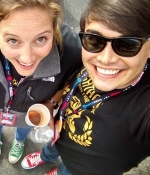
Lauren Hofmayer and Robert (Robbie) Torney, both (STEP) MA ’10, are getting married! Lauren writes: “Robbie and I met when we entered STEP Elementary, with just 22 teaching candidates (two men and twenty women). We began dating in January 2010 and graduated in June. Robbie got his first job teaching in San Jose, and I started my teaching career in a small town in the Santa Cruz Mountains. We supported each other ‘long distance’ through our first three years of teaching, visiting each other every weekend and discussing lesson plans and teaching over the phone during the week. In 2011 Robbie transitioned to Lighthouse Community Charter School in Oakland to teach kindergarten, and I joined the Lighthouse team in 2013 to teach third and fourth grade. We are both still at Lighthouse and are completing our fifth year of teaching this year. We are planning our wedding for this July 4th, 2015. We are now part of the Lighthouse family and have invited all of our students to our wedding in Stanford Memorial Church! We are thankful to STEP for preparing us well for our first years of teaching and for bringing us together.”
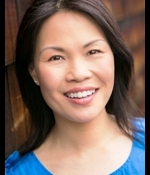
Tina Lee, (LDT) MA ’10, is the founder of MotherCoders, a nonprofit social enterprise based in San Francisco. The group aims to make the “new economy” more inclusive by helping moms to pursue careers in technology. Through their nine-week, Saturday-only tech orientation program, moms learn basic computer programming, expand their understanding of the technology landscape, and network with peers and industry professionals. MotherCoders also provides on-site childcare to program participants who need it, removing a major barrier to many mother’s being able to gain access to training. The group’s work was recognized by the Points of Light Foundation, which featured MotherCoders as part of its Spring 2015 Civic Accelerator program to promote efforts that increase economic opportunity for women and girls.
Read about other alumni of Stanford Graduate School of Education in the latest Class Notes or by checking out the alumni home page.
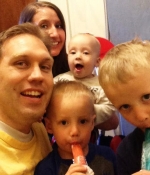
Jon McNaughtan, (POLS) MA ’10. After graduating from POLS in 2010 Jon worked for two years as the President's Council Fellow at Southern Utah University. After that he enrolled in the University of Michigan where he just completed his third year working toward his PhD in Higher Education, Organizational Behavior and Management. Recently Jon co-authored an article, “Positive Organizational Change,” in the Journal of Applied Behavioral Sciences. He is now working on his dissertation focused on organizational fit of university presidents and is enjoying life with his wife and three little boys!
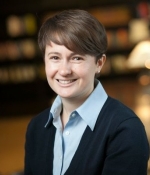
Erica Ostermann, (POLS) MA ’10, works at Cornell University where she is a House Assistant Dean in the West Campus House System. In this capacity she helps faculty to become involved in the undergraduate residential experience to create informal intellectually engaging opportunities for house residents. Erica is also a pursuing a PhD in information science through Cornell’s employee degree program. Her research looks at how undergraduates are using technology to navigate their social transition into college, as well as the use of large public displays to support community building. When not at work or in class, she has enjoyed teaching rock climbing in the Cornell Outdoor Education program and in the summer of 2014 rode her bicycle from Seattle to San Diego. On this bicycle tour she was excited to be able to visit with Tricia Maas, (POLS) MA '10; Susan Tu, (POLS) MA '10; and Lindsey Sheehan (Engineering) MA '10.
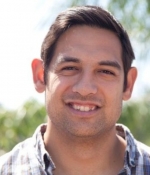
Aaron Fulk, (POLS) MA ’11, writes: “My first job out of the POLS program was as assistant director at the Family Engagement Institute (FEI) at Foothill College. During my time at Stanford, I became passionate about working for an open access institution. I was drawn to FEI because it was a start-up nonprofit organization incubated within a community college that enabled me to work with lower income families in Silicon Valley. During my time at FEI, I also worked as a seasonal reader for Stanford's undergraduate admissions office, read applications for QuestBridge and shadowed the founder of Alpha Public Schools during the school's inception.
“After FEI, I moved to the world of independent schools as associate director of college counseling at St. Margaret's Episcopal School (SMES) in San Juan Capistrano. I worked on the school's diversity initiatives, supported full scholarship students through the college application process, served on several committees and coached varsity baseball. This past year, I continued my path in independent schools by moving to Richmond, Virginia, to work as a college counselor at Collegiate School where I serve in a variety of capacities.
“I love working at Collegiate, an academic institution that has the ability to make curricular changes in an agile way. I have been able to continue working on diversity initiatives to ensure that students who come from lower income backgrounds have opportunities equal to our overwhelmingly affluent population. At Collegiate, I am part of a tight-knit community where I have the opportunity to get to know my students in different environments: the classroom, college counseling, athletics, arts and casually hanging out in my office. It's a dream job where I am able to straddle the two worlds of working with students every day while also addressing administrative concerns and challenges like curriculum offerings, external communication, and data analysis.”
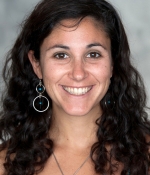
Elizabeth (Betsy) Harris Cepparulo, (POLS) MA ’12, has taught AP Government at Eastside College Preparatory School in East Palo Alto, Calif., since 2013. She writes: "I have LOVED being at Eastside these last two years. It's really the most remarkable place at which I've ever had the privilege of working. Eastside is a school for low income students who will be the first in their families to go to college, and it is fully funded by generous donors in the area. The students inspire me every single day, and I'm grateful to know them." Betsy will move to Delaware at the end of this school year to be closer to her family and to teach global peace and justice at Wilmington Friends School. In her spare time she will teach Zumba and pursue emerging professional opportunities that foster civic engagement.
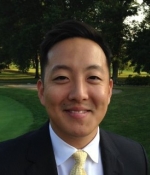
James Ihn, (POLS) ’13, worked in student activities as assistant director of leadership development at Seton Hall University after graduating from Stanford Graduate School of Education. He writes about having just returned from advising a service trip to Honduras with college students and notes that he recently started a new position as student affairs manager at Columbia University in the Biomedical Engineering Department. James got his start in student activities during his time as a POLS student, where he interned as a program coordinator under Nanci Howe and Ankita Rakhe in the Student Affairs Higher Ed Fellows Program.
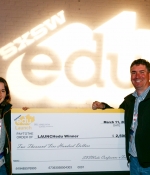
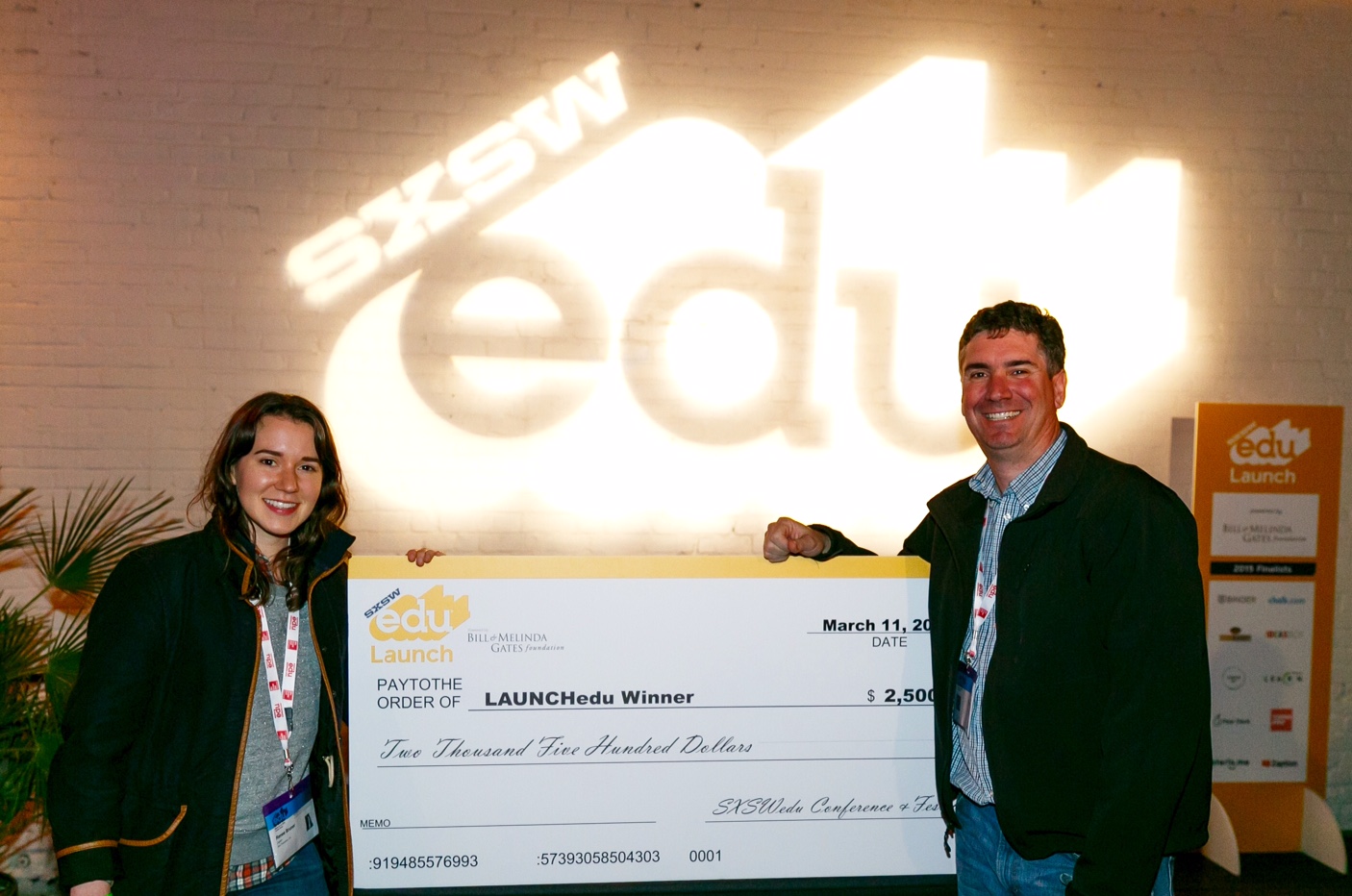
Dan Gilbert, MA ’02, wrote this update on behalf of LDT alumni who attended the SXSWedu Conference and Festival in March: “Congratulations to LDT alumni Chris Fitzgerald Walsh, MA ’00, and Renee Bruner, MA ’14, whose company Zaption won the grand prize in the LAUNCHedu startup competition at the SXSWedu conference in Austin, TX. [Photo above.] LDT alumni from 1999-2014 met at the festival to share experiences, strengthen our network, and support one another. I presented a citizen-science social media project at the conference with a team of high school students from Omaha North High School. Alumni Debbie Stephens Stauffer, MA ’99, Tacy Trowbridge, MA ’01, Angad Singh, MA ’14, Manwen Ivy Guo, MA ’13, and Stephanie Chang, MA ’12, were also there, and we were joined for some inspiration from POLS alum Jason Weeby, MA ’07.”
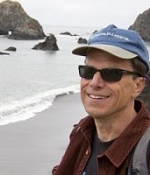
Bruce Fuller, PhD ’84, and José Ramón Lizárraga, MA ’12 co-authored the recent report, “Digital Media and Latino Families: New Channels for Learning, Parenting, and Organizing” for the Joan Ganz Cooney Center. They found that while Latino families purchase and use tech tools almost as much as their white counterparts, they use them less often for school work or educational tasks. The report also examines the barriers faced by foreign-born or low-income Latino families in accessing digital technology, how technology positively and negatively disrupts family and community ties, and how community organizations are using these tools in their work to empower children and families. Bruce is a professor at the UC-Berkeley Graduate School of Education. To read more about José Ramón, see his class note below.
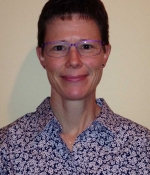
Sarah Deschamps, MA ’89, is the development director for the Langley School, a private school in the greater Washington, DC area. After graduating from STEP, she worked as an assistant head of the Montessori School of Tokyo, served as a board trustee for the American School in Japan, and taught Spanish and French at the middle school and high school levels in Evanston, IL and St. Paul, MN.
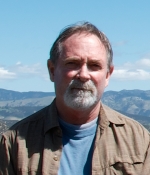
John Sheehan, PhD ’89, is a senior data analyst for Complete Genomics, a biotech company in Mountain View, CA. He has worked in the educational software industry as a data analyst and programmer for a decade. Before that, Sheehan taught math at the middle school, high school, and community college levels, and was a computer science instructor at San Francisco State University. He volunteers as an Advanced Placement computer science teacher at Woodside High School in Woodside, CA through the Technology Education And Literacy in Schools program (TEALS).

Josh Sheldon, MA ’99, writes, “Along with my wife Arlene, I’m learning about early childhood and elementary education in a very personal way—raising two amazing daughters.” He is also the director of strategic programs for the MIT App Inventor Project, where he strives to bring excellent computing education and educational technology to students and youth.
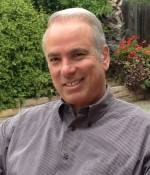
Brian Karadashian, MA ’90, wrote his first novel, A Flag in the Window (Dog Ear Publishing, 2012), which was selected as a finalist in the published children’s fiction and picture book category for the 2013 San Diego Book Awards. The children’s historical novel follows Billy Roarke, a 12-year-old boy living in Pasadena who yearns for his father, a paratrooper stationed in England during World War II. Karadashian teaches elementary school for the Poway Unified School District in San Diego, and has published articles in the Los Angeles Herald-Examiner and the Dallas Times Herald. He lives in Escondido, CA with his wife Marcia, and has two grown stepchildren.
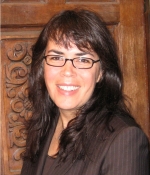
Ana Villalobos, MA ’90, is an assistant professor of sociology at Brandeis University. She is completing a book titled Motherload, which examines how American families rely on intensive mothering to remedy economic, physical and emotional threats. Using detailed case studies, Villalobos shows how women's attempts to becoming a “perfect mother” often backfire, creating more stress and deflecting their focus from other possible sources of security. The book is due out this September and will be published by University of California Press. After graduating from STEP, Villalobos taught high school math for nine years before returning to school to earn a PhD in sociology at UC Berkeley.
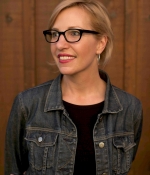
Kelly Amis, MA ’94, has produced TEACHED, a short film series that examines the racial achievement gap in the U.S. school system. She founded Loudspeaker Films, an independent production company focused on educational equity and other social justice issues. Since graduating from Stanford, Amis researched the Australian education system as a Fulbright Scholar, served as a legislative aide for Senator Dianne Feinstein, and directed strategic initiatives for the Cesar Chavez Charter Schools for Public Policy in Washington, DC. She also worked for the Thomas B. Fordham Foundation and Building Hope, among other organizations.
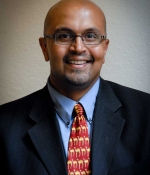
Anand Reddy Marri, MA ’96, was named Vice President and Head of Economic Education for the
Federal Reserve Bank of New York, becoming the highest ranking officer for education in the Federal Reserve System nationwide. Marri is an associate professor of social studies and education at Teachers College. His research focuses on economics education, civic education, multicultural education, and social studies education. In 2010, he led the creation of “Understanding Fiscal Responsibility: A Curriculum for Teaching About the Federal Budget, National Debt and Budget Deficit” to improve the economic literacy of K-12 students. At the Federal Reserve Bank, Marri oversees programs in public education, professional development for university faculty, and career learning for young people in the fields of economics and finance. He also directs the Bank’s museum.
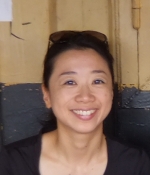
Ikuko Shimizu, MA '00, is deepening her knowledge of pedagogy and classroom dynamics to complement her experience in education policy and management. Currently on special leave from UNICEF, she lives in Tanga, Tanzania, where she is studying online, teaching at a secondary school, and supporting a start-up NGO aimed at improving teaching and learning in local secondary schools.
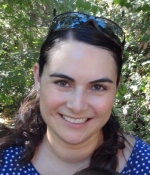
Marysol de la Torre-Escobedo, MA ’03, received the Golden Apple Teachers Are Heroes Award in recognition of her outstanding service and dedication in education. She teaches US History, AP US History, and Economics in Chico, CA at Inspire School of Arts and Sciences, which empowers students to reach their intellectual, creative, personal, civic, and social potential in a supportive and personalized environment. A STEP graduate, she started her teaching career at East Palo Alto Academy. Her experiences at EPAA have been invaluable in helping to found Inspire, the first in-district charter high school in Chico.
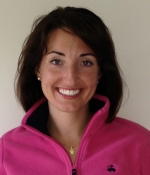
Elizabeth Canfield Zajac, MA ’05, married in July, earned a National Board Certification for the Teaching of World Languages last fall, and is currently a lead teacher and AP French teacher in the John D. O'Bryant School of Mathematics and Science in the Boston Public Schools. She has worked as a professional educator for ten years. Zajac is a doctoral candidate at Boston University in the Department of Educational Leadership and Development.
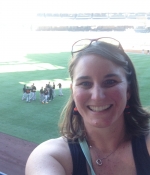
Kate Rennie (née Trimlett), MA ’05, teaches high school science for the Berkeley Unified School District. She serves as a career technical education liaison, an internship program coordinator, and a teacher in her school’s Bridge Program. The Bridge Program supports students struggling with academics or life challenges, beginning the summer before they begin high school through graduation.
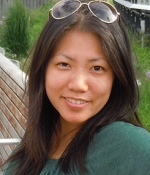
Charlotte Cheng, MA ’06, has worked as a curriculum designer for several edtech companies, including Disney, LeapFrog, Meemli, and Gazillion Entertainment, as well as various startups. She is also a freelance illustrator. Her picture books, A Moment in Time and Silly McGilly, have attracted media attention from The New York Post and Real Simple, and garnered multiple awards.
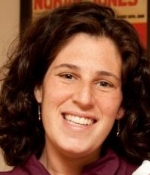
Julie Elis, MA '06, Clara Bennett, MA '07, and Kerri Thomsen, MA '12, recently returned from a workshop in Bangkok, where they helped develop and launch new training tools and workshop session plans for Room to Read's Literacy Program. The materials will guide effective library and early grade literacy instruction programs around the world. Room to Read, a global nonprofit with offices around the world, collaborates with NGOs and local governments across Asia and Africa.
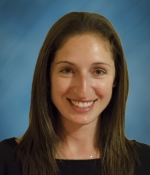
Jenna Wachtel, ’06, MA ’07, is the program director of the Early Learning Initiative at the New Teacher Center, a national nonprofit that accelerates the effectiveness of new teachers and school leaders to improve student learning. She supports teachers and systems that serve students from ages 3 to 5 to ensure that all children have an equitable start in life.
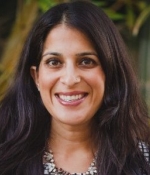
Jessie Arora, MA ’08, recently launched Embark Labs, which teaches computer science and design thinking to elementary and middle school students in hands-on, collaborative ways. Embark Labs is running pilots throughout the South Bay and Peninsula areas. It will open its first pop-up lab in Menlo Park, CA this summer.
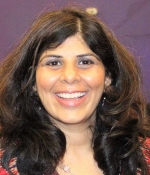
Sandhya Sabhnani, MA ’00, works as an educational consultant for Nepris, an online virtual platform that connects teachers with high tech industry experts to engage students to learn more about STEM subjects and careers. Educators who are interested in using Nepris for their school or those who are interested in volunteering online for Nepris are encouraged to contact Sabhnani at sandhya@nepris.com. She lives in Houston with her four-year-old son Avi and one-year-old daughter Arya.

Bernardo Naranjoy Pinera, PhD ’02, is Director General of Proyecto Educativo, a research and consulting firm working to improve public education in Mexico. Proyecto Educativo organized a group of GSE students and recent graduates from Mexico to present their work to high officials from Mexico’s Ministry of Education and the National Institute for Education Assessment and Evaluation last year. Pinera reports that most of the graduates who presented received job offers. Proyecto Educativo intends to repeat the event every August.
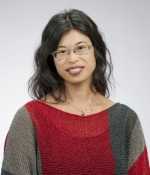
Viki Young (MA ’95, PhD ’05), received the 2013 Mimi Award from SRI International, the center’s highest recognition of its staff members. SRI cited Young “for giving selflessly of her time and expertise to mentor others, never shying away from giving honest feedback, and inspiring her colleagues to continually grow professionally while taking a sincere interest in their lives outside of work.” A principal scientist in SRI International’s Center for Education Policy, Young conducts national, state, and local research and evaluation projects on K–12 policy and reform. She serves as the principal investigator for two studies. The first investigates the effects of training on teacher and student outcomes at the Rio Grande Valley Center for Teaching and Leading Excellence, and the second examines successful strategies for preventing high school dropout and preparing at-risk youth for postsecondary education.

Angela Booker, PhD ’07, won the AERA Division C Jan Hawkins Award with Victor Lee of Utah State University. The award recognizes early career individuals who best demonstrate the intersection of humanist activism, theoretical scholarship, and technological innovation. She presented “Legitimate Peripheral Technology: When Youth Act to Disrupt Social Patterns” at the award session in April. An assistant professor of communication at the University of California, San Diego, Booker studies how youth, families, and schools use media and technology for civic and political participation, learning, and community development. She is particularly concerned with addressing barriers to public participation among underrepresented and disenfranchised communities.
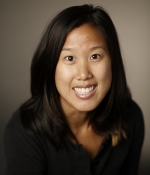
Q. Tien Le, MA ’10, taught sixth grade in South Los Angeles for three years after graduating from STEP-Elementary. She is now pursuing a PhD in Urban Education Policy at the University of Southern California Rossier School of Education. “Two years into my PhD program, I can still say with 100 percent confidence that teaching is the hardest job I've ever had. Much respect to those teachers still on the frontlines,” she writes.
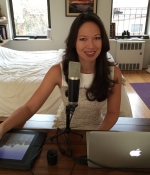
Katie Kormanik, MA ’11, designs and sometimes delivers online courses. She collaborates with subject-matter experts to design online curricula, including determining appropriate modes of instruction (typically video and text), activities, exercises, and graphics, and organizing them into a logical flow.
“Videos might be interviews with the experts, a fictional scenario with actors, or interviews with guest speakers,” she explains. “They could be anything. Exercises could be quick quizzes, complex case studies, or a group activity—again, possibilities abound.”
Kormanik designed and delivered Statistics: The Science of Decisions, a MOOC through Udacity that has enrolled over 50,000 students to date. “(While) the debate over credentialing rages on, there’s no doubt that online education is quickly becoming an integral part of how we learn,” she says. Those interested in “geeking out about online education” may contact her on LinkedIn.
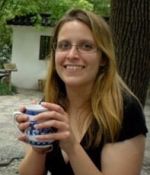
Heather Charles, MA ’12, writes, “After taking a year off to recover from injuries sustained while classroom teaching, I am happy to report that I am entering a PhD program in fall in the history of education. I haven't committed anywhere yet, but I am excited about the University of Washington’s program in cultural and social foundations.” Charles’ research focuses on the recent history of funding, segregation, and equity in schools in the American West. She intends to examine how the current state of Sacramento schools illustrates the failures of reform in the last few decades since the passage of Proposition 13 and the San Antonio Independent School District v. Rodriguez ruling. “I’m excited to enter the next phase of my work as an educator and activist,” she says.
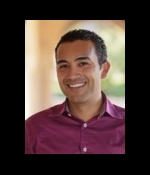
José Ramón Lizárraga, MA ’12, researches the role of digital media in the education of Latinos. He co-authored a book chapter in Multilingual Learners and Academic Literacies: Sociocultural Contexts of Literacy Development in Adolescents (Routledge, 2015) titled, “Academic Literacies in a Social Media Age: Lessons Learned from Youth’s Transnational Communication Online.” His study examines how multilingual learners in the United States. and Mexico strategically and ingeniously use image, audio, and texts to establish and maintain online relationships with each other across geographic, cultural, and linguistic barriers.
Lizárraga and Bruce Fuller, PhD ’84, co-authored the recent report, “Digital Media and Latino Families: New Channels for Learning, Parenting, and Organizing” for the Joan Ganz Cooney Center. They found that while Latino families purchase and use tech tools almost as much as their white counterparts, they use them less often for school work or educational tasks. The report also examines the barriers faced by foreign-born or low-income Latino families in accessing digital technology, how technology positively and negatively disrupts family and community ties, and how community organizations are using these tools in their work to empower children and families.
Lizárraga is third-year doctoral student at the UC Berkeley Graduate School of Education, where he is a Distinguished Fellow and a senior editor for the Berkeley Review of Education. He is a research director of Xóchitl Justice Press and on the advisory board of Academia Cultural, an organization providing culturally and linguistically authentic art and literary programs for youth. He lives in San Francisco with his partner Arturo Cortez and their pet chihuahua Xóchitl.
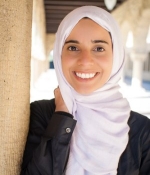
Rasha ElSayed, MA ’13, leads program development for a high school in Fremont, CA. She is guiding a school-wide evaluation of all programs to prepare the school for accreditation review. She also teaches a year-long design thinking class to juniors. “This has been a great experience for me so far. I am learning to apply what I learned at Stanford in real and complex settings,” she says.

Marwa Abdel Fattah, MA ’14, is a preschool teacher, and teaches child development for early education at the American University in Cairo. “My two jobs are very compatible and I see myself growing everyday as I combine theory and practice,” she writes. She is collaborating with professors and professionals at the American University in Cairo on a project aimed at setting standards for early childhood education in Egypt.
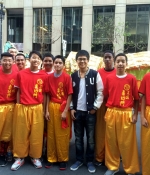
Jun Du, MA ’14, launched the first Mandarin language program at Napa Valley Unified School District in Napa County, CA this school year. The course is offered as an elective to middle school and high school students in American Canyon. Du and his students performed at the 2015 San Francisco Chinese New Year Parade
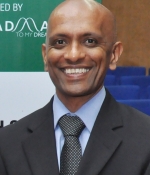
Vipul Redey (MA ’12) collaborated with Colin Meltzer (MA ’11) on a joint project between eighth grade students of Global Discovery Academy School in Vadodara, India and the Boston-based Carroll School to design and build mobile games. Over a period of three months, the students—10 from Vadodara and 12 from Boston—collaborated online via Scratch and Skype to share ideas, plan and design video games. The students presented and demonstrated their final projects at an event at Global Discovery Academy School. Redey is the chief product officer for Global Discovery Academy Schools, and Meltzer is the Fab Lab and Learning Commons Director for the Carroll School, a school for children with language-based learning disabilities. Redey is now exploring possible collaborations with LDT alumni in Singapore, Mongolia and Mexico.
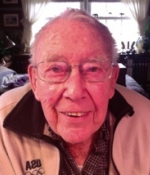
Roy Davis, MA ’47, earned an MA in public health at UC Berkeley after graduating from Stanford. He then worked for 10 years at the Office of Marin County Superintendent of Schools, where he directed a wide variety of public health education programs and services for the school district. His efforts attracted the attention of US Public Health Service representatives, who offered him a position developing a school health initiative at the federal level. During his 27-year tenure at the US Public Health Service, he created a model health education curricula and established partnerships with the then-named Department on Health, Education, and Welfare; the US Food and Drug Administration; and numerous federal and state agencies and nonprofit organizations. Since retiring in 1986, he has traveled to over 100 countries. He enjoys playing the piano and organ and pursues genealogical research.
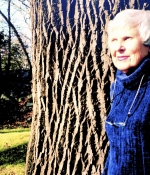
Alice Stephens, BA ’48, is a painter whose mission “is to promote awareness of the beauty that surrounds us, and to inspire conservation of our world.” An acrylic painter, she shows locally at the Portland Art Museum Rental Sales Gallery, the Oregon Society of Artists, and in her studio in the Oregon Society of Artists building. She and her grandson attended her 65th class reunion at Stanford last November.

Phyllis Peterson, EdD ’59, served as president of Diablo Valley College in Concord, CA for the last 15 years of her career before retiring in 1996. She began her career as a high school French teacher, and was later recruited as an administrator for De Anza College in Cupertino, CA and Cuyamaca College in San Diego County. At Diablo Valley College, Peterson helped develop the Center for Higher Education, and led the college to its highest enrollment of 23,000 students. She served as head of Chief Executive Officers of the California Community Colleges, and has received awards for her leadership in higher education from the Association of California College Administrators and the University of Texas Community College Leadership Program.
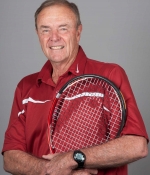
Dick Gould, MA ’60, has worked as a teacher, coach, and administrator in the San Francisco Peninsula, including two years at Mountain View High School, four years at Foothill College, and most famously, 48 years at Stanford. From 1966 until his retirement in 2004, he coached the Stanford men’s tennis team and led his teams to 17 NCAA Team Championships and coached 50 All-American champions. He mentored and coached numerous tennis greats, including John McEnroe, Roscoe Tanner, Sandy Mayer, and the Bryan Twins. Gould helped develop the East Palo Alto Tennis and Tutoring Program and has led significant fund-raising efforts for Stanford tennis, including the $18 million facility renovation of the Taube Family Tennis Center. He is the author of the best-selling Tennis Anyone? (Mayfield Publishing, 1999) and has made several videos on playing tennis. Gould is the John L. Hinds Director of Tennis at Stanford.
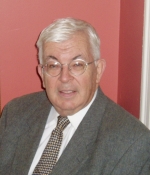
Joseph Cronin, EdD ’65, teaches courses in educational policy, and governance and decision making at Boston University’s School of Education. He currently advises the Sea Research Foundation’s Mystic Aquarium in Connecticut on several planning projects, including the S.E.A. Aquarium in Singapore, the world’s largest aquarium. Cronin served as a consultant to the World Bank on Iraqi higher education accreditation, and recently gave two lectures in Dubai to Iraqi educators.

Janet Rooker, MA ’67, is the author of Nail Your College Essay (Rooker Associates LLC, 2009), a guide for students about the process of college essay writing. An educational consultant for the past 12 years, she regularly mentors other adult professionals who want to become educational consultants at the college level.
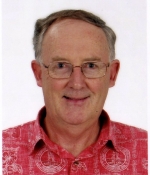
Ian Smith, PhD ’71, wrote, “I am extremely grateful to the GSE and its faculty for giving me the intellectual skills to share my knowledge with many students and colleagues, both locally and internationally, in my 34-year career on the faculty of the Education and Social Work program at the University of Sydney, Australia.” Smith specialized in educational psychology and human development, and retired from the University of Sydney in 2006. He is now a visiting professor at Thailand’s Burapha University, where he supervises PhD students in an international human resource development program.
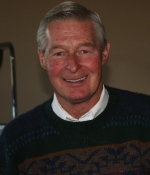
Tom Hoskins, MA ’72, has authored and self-published When I Was a Kid: Looking Back and Reaching Forward, with the aim of inspiring others to mentor young people toward fulfilling lives. In the book, Hoskins revisits his memories of growing up in Davis, CA in the 1950s and running away from home at age 15, and reflects upon his 30-year career teaching junior high school in Northern California and the Central Valley. Hoskins is retired and lives in Mount Shasta.
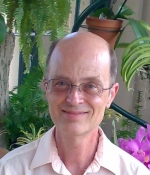
William Scott, MA ’72, is a campus minister for the Vedanta Society of Southern California. For three years, he taught weekly classes at the University of Southern California on Vedanta philosophy and its connections to other faiths and to astronomy, cosmology, neuroscience, mathematics, and psychology.
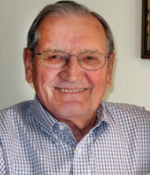
Merrill Newman, MA ’55, is the subject of a new ebook, The Last P.O.W., which tells how he was detained in North Korea in 2013. Written by journalist Mike Chinoy, it is the exclusive account of Newman’s harrowing experience that began when he was taken off a plane in Pyongyang after completing a tourist trip. According to the summary on Amazon.com, “For nearly two months, he was held by North Korea’s fearsome security services, subjected to intensive interrogation and repeatedly warned that if he did not confess his ‘crimes,’ he might never be allowed to return home.” Apparently, the North Koreans viewed this retired technology executive and grandfather, who lives in Palo Alto, as an ”enemy agent,” because of his service as a U.S. military advisor in Korea in 1953. Newman’s wife, Lee, and his son and daughter-in-law worked tirelessly with the State Department and many others to obtain his release. The Amazon summary calls the story “an inspiring tale of an ordinary American family’s courage and resilience in a situation as frightening as it was bizarre.”
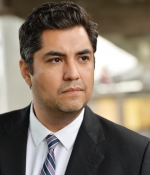
Marcos Najera, ’94, MA ’95, describes himself as a “hybrid storyteller”: an actor/director/journalist/teacher. He is a teaching artist for Center Theatre Group in Los Angeles and a recipient of its Dana Fellowship, as well as a directing assistantship from the Oregon Shakespeare Festival. He is a company member of East LA Rep, a rebel performance artist for Guillermo Gomez Peña's La Pocha Nostra troupe and a long time artistic associate of playwright Anna Deavere Smith. "I would describe myself artistically as Marcos Deavere Peña, the imagined bastard offspring of Gomez-Peña and Smith," he jokes. Najera is currently crafting curriculum with Smith at the Institute on the Arts & Civic Dialogue at New York University. He has created as one-man show, Neuroplasticity: The Brown Brain, which explores mental health issues in communities of color. Researchers from the USC Translational Neuroscience Research Group served as consultants for his solo project. Other recent theater credits include directing ¡Ser! at the Los Angeles Theater Center and Sueños Sin Fronteras at Cornerstone Theatre Company. As a reporter, Najera has filed stories for NPR, the BBC, CNN and NPR’s Latino USA.
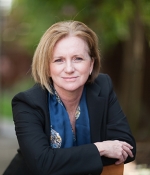
Catherine Casserly, PhD ’96, is the new vice president of learning networks of EdCast, a Stanford StartX company that creates Knowledge Cloud platforms for institutions, educators, enterprises and governments to collaborate with each other. She is a fellow of the Aspen Institute and a member of the technical working group developing the 2015 National Education Technology Plan for the U.S. Department of Education. She previously served as the CEO of Creative Commons, a Silicon Valley nonprofit that provides legal and technological tools for sharing and collaboration.
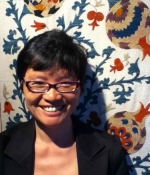
Jennifer Chan, MA ’99, PhD ’01, is author of the new book, Politics in the Corridor of Dying: AIDS Activism and Global Health Governance (Johns Hopkins University Press, 2015), an examination of global AIDS activism in the last 25 years. The book documents the emergence of nongovernmental organizations and civil society groups engaged in AIDS advocacy worldwide, and critically evaluates how they have influenced global AIDS governance. The book analyzes the interventions of AIDS activists in four areas—science, market, governance, and community.
“I wouldn’t have been able to conceptualize and carry out such an ambitious project without my interdisciplinary training at GSE,” said Chan. “My broad training in international human rights law, international relations, feminism, anthropology and political sociology at Stanford over a decade ago sowed the seeds for this research on global AIDS activism, advocacy education, and governance. “
Chan is an associate professor in the Institute for Gender, Race, Sexuality and Social Justice at the University of British Columbia. She is the editor of Another Japan Is Possible: New Social Movements and Global Citizenship Education (Stanford University Press, 2008) and the author of Gender and Human Rights Politics in Japan: Global Norms and Domestic Networks (Stanford University Press, 2004).
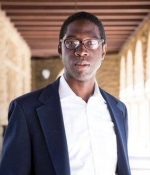
Travis Bristol, MA ’04, who received his PhD in education policy from Columbia, recently gave testimony for a public hearing in Boston on black male teachers in Boston Public Schools and how the district could increase teacher diversity. Currently a research and policy fellow at Stanford Center for Opportunity Policy in Education, he wrote a blog for Edutopia about what administrators and teachers could do to address the issues of race and violence in schools, following the Ferguson grand jury decision in November on the Michael Brown shooting. Both Education Week and Teach for America recommended his blog as a resource for teachers looking to address Ferguson in the classroom. In January, he published “Teaching boys: Towards a theory of gender-relevant pedagogy” in Gender and Education. The article reframes the public discourse around improving the negative school outcomes of black boys by exploring how educators’ socialized views around gender influence the ways they teach boys.
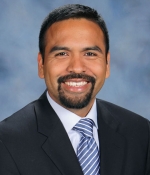
Hector Camacho, MA ’07, was appointed in June to be a trustee of the San Mateo County Board of Education. In November he ran unopposed for the position and was elected to a four-year term. He is currently a high school teacher and guidance counselor in Mountain View, Calif., and previously taught in both comprehensive and alternative high school programs in San Mateo County.
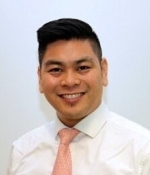
Josefino Rivera, MA ’07, recently started a new position teaching secondary English at Asociación Escuelas Lincoln, an American school in Buenos Aires, Argentina. Prior to moving to Argentina, Rivera taught English at Bonn International School in Germany, where he also coordinated community and service projects in its Middle Years Program, organized TEDxYouth events and founded the school’s Gay-Straight Alliance.
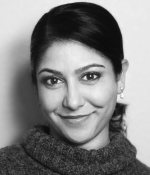
Piya Sorcar, MA ’06, PhD ’09, founder and CEO of TeachAIDS, can be seen in a video on YouTube that gives a behind-the-scenes look at how the nonprofit social venture worked with the leading lights of Indian entertainment to create 12 new animated versions of it software. Developed at Stanford as part of Sorcar’s graduate work, TeachAIDS produces interactive HIV prevention software specifically targeted to individual cultures. Its materials are now used in 78 countries, including regions where no other HIV-related educational materials were previously allowed. Last year the group rolled out its 12 new segments, partnering with numerous governments, NGOs and celebrities, including legendary Bollywood actor Amitabh Bachchan.
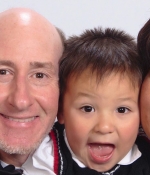
Tseh-sien Kelly Vaughn, PhD ’09, is an associate professor in education and leadership at Notre Dame de Namur University and recently completed a sabbatical. She co-authored the study “Summative as formative: Reflective practices from pre-service to in-service through teaching performance assessments,” which appears in the book, Reflectivity and Cultivating Student Learning: Critical Elements for Enhancing a Global Community of Learners and Educator (Rowman & Littlefield Education, 2014). She is currently conducting a case study comparison of Performance Assessment for California Teachers and master teacher scores, and examining the implementation of reflective tech activities aligned with K-5 Common Core Math standards. She is also exploring social emotional learning in teaching performance assessments with San Jose State University Professor Nancy Markowitz. “But most of all, I am enjoying the time with my husband Dennis (a veteran teacher at Sunnyvale School District and a great baker), daughter Talitha (8-year old math whiz with a beautiful smile who loves Japanese anime), and son Zacchaeus (adorable soon-to-be 5 year old with an artistic imagination and determination),” she writes.
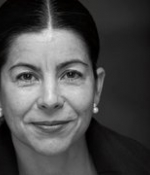
Katy Kavanaugh, MA ’10, recently repatriated from Germany, where she researched the impact of foreign-language films on childhood autobiographical memory. She received funding support for her research from Stanford, Free University Berlin and the Berlin International Film Festival’s Generation section. Her research efforts inspired her to develop a rough cut documentary about her search to find Felix — an 11-year-old international film buff Kavanaugh met in 2001 — and to learn how a childhood spent watching international films has influenced his life. The film is now in post-production. Kavanaugh is raising funds through fiscal sponsor Cinefemme.net to complete the project.
In Germany, Kavanaugh also worked with several education, health care, government and finance firms as a design thinking coach. She produced “d.confestival,” the first international conference of design thinkers, at the Hasso Plattner Institute in Potsdam in September, and served as a guest expert at Design Thinking Week Poland in October. To learn more about her work supporting planning and innovation teams, visit Katykavanaugh.weebly.com.
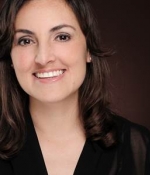
Daniela Rubio, MA ’10, is a founding board member of Enseña por México (Teach for Mexico), an initiative to improve Mexico’s educational system by transforming its top graduates into lifelong leaders committed to improving the lives of students across Mexico. The organization placed its first cohort of 100 members in public secondary and upper secondary school in the Puebla state in 2013, and will launch its third cohort this September. Rubio helped establish the Interdisciplinary Program on Education Policy and Practice, a program of Centro de Investigación y Docencia Económicas in Mexico City. PIPE is conducting research with Mexico’s Secretary of Education and the National Council of Science and Technology.

David J. Knight, MA '11, is an affiliated researcher with the Justice in Schools Project at Harvard Graduate School of Education and a public school teacher in Boston. He writes on issues related to urban adolescent development, the intersection of racial and gendered identities among young males and teaching for social justice. He recently published the article, “Beyond the Stereotypical Image of Young Men of Color,” in The Atlantic. The Atlantic also featured a short documentary Knight produced and co-directed on the legacy of Boston busing and school desegregation and a Q&A interview about the film on its website. Knight published “Toward a Relational Perspective on Young Black and Latino Males” in the Winter 2014 issue of the Harvard Educational Review.
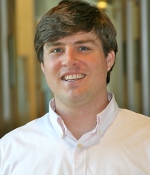
David Yeager, MA ’10, PhD ’11, assistant professor of developmental psychology at the University of Texas at Austin, is currently a fellow at the Center for Advanced Study in the Behavioral Sciences at Stanford, where he is conducting research on adolescent behavior change. Last year he was featured prominently in a New York Times Magazine cover article about his work to help disadvantaged students succeed at UT Austin, as well as in a story in The Atlantic about the impact of positive, affirming messages on student achievement. National Public Radio also reported on his interventions to foster purposeful learning and reduce depression among teenagers.
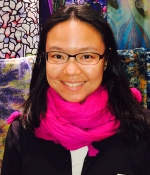
Elizabeth Wong, MA ’12, became a National Board Certified Teacher in English as a New Language in November. National Board certification is an advanced teaching credential granted to teachers who demonstrate a strong command of the content they teach; design appropriate learning experiences for students; make instructional decisions using assessments; and partner with parents, colleagues and the community. Certification is based on the National Board for Professional Teaching standards.
“What most excited me about the National Boards certification process was examining my own teaching practices vis-a-vis the National Board Standards created by teachers, researchers and experts in the field,” said Wong, who is a 17-year veteran teacher for the New York City Public Schools system.
The National Board certification process required Wong to reflect on and analyze her teaching practice, submit video recordings of her teaching and provide evidence in meeting National Board standards.
“What surprised me in watching videos of my own teaching was how much more talking I did in my lessons than my students,” she said. “It reminded me to balance the scaffolding of learning for students without depriving them of opportunities to process and express their ideas.”
For those thinking of pursuing National Board certification, she offered some words of advice: “Know that it will be time-consuming work, but the kind that is ultimately rewarding and satisfying. You will investigate your own practices as a teacher in relation to a set of standards agreed upon by your field, which will provide you a solid foundation in your daily work as you engage with students, colleagues, and anyone with whom you discuss education.”
In addition to teaching, Wong leads book study groups for educators and delivers professional development workshops on teaching English as a Second Language in her school and other New York City public schools. She served as a 2012-2014 Common Core Fellow with the New York City Department of Education.
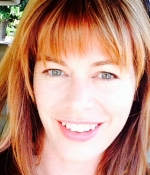
Leigh Anne Miller, MA '12, is the west coast director of Pratham, an education NGO serving nearly 5 million children in nine countries. She is also a board member of Pratham’s San Francisco Bay Area chapter and welcomes inquiries about Pratham’s work. She serves as an advisor for the Texas-based Strategic Insight Group, which provides private businesses with intelligence analysis. Miller also advises C4ADS, a nonprofit that provides governments and international bodies with analysis and reporting on illegal movements of goods and money in conflict zones. She is passionate about the intersection of technology and development, and has a strong interest in youth populations in fragile and post-conflict states that suffer from high rates of illiteracy and unemployment.
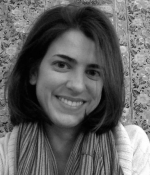
Amy Ahearn, MA ’13, works as a senior innovation associate at the Acumen Fund, where she designs courses for its growing online academy of social change. The courses aim to equip emerging global leaders with new approaches to tackling poverty. Prior to joining Acumen, she built online courses for the Stanford School of Medicine and managed U.S. Department of State teacher fellowship programs.
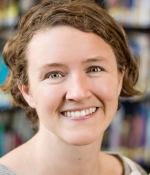
Carrie Oelberger, MA ’10, PhD ’14, is an assistant professor of management and leadership at the Humphrey School of Public Affairs at the University of Minnesota. Her research examines norms and structures within the nonprofit sector, drawing upon and contributing to the sociology of work, organizational theory, economic sociology, the study of social movements and social psychology.
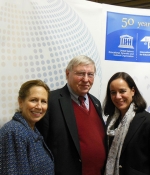
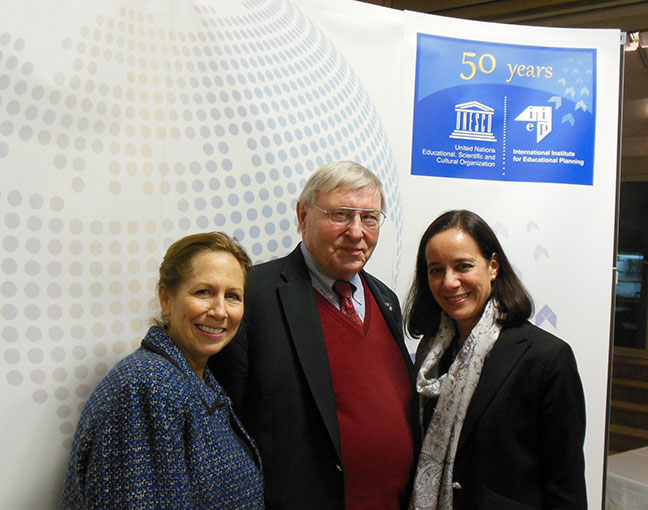
Suzanne Grant Lewis, PhD ’88, and Clementina Acedo, MA ’84, MA ’88, PhD ’97, met with Professor Emeritus Hans Weiler at the 50th anniversary celebration of the International Institute for Educational Planning (IIEP) in Paris. Lewis is the deputy director of IIEP, where she helped launch the International Education Funders Group, a collaborative of over 60 foundations helping private funders advance UNESCO’s Education for All initiative. Acedo directed the International Bureau of Education in Geneva from 2007 to 2014, and is now director of Webster University’s Geneva campus.
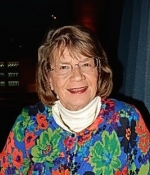
Mary Lou Harbison, MA ’67, works as a program specialist for MOUSE Squad of California, a youth development program that trains and supports underserved youth to become digital media and technology experts in their schools. MOUSE Squad provides youth with opportunities to deepen their skills and interests in tech innovation, including robotics, game design and website building, and gives them the chance to lead and build confidence in their ideas. Prior to working at MOUSE Squad, Harbison developed and ran a technology-training program for teachers, administrators and technology coordinators through the Los Angeles County Office of Education for 15 years.
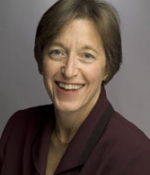
Susan Murphy, MA ’74, will retire as vice president for student and academic services of Cornell University in June after more than 20 years of service. As vice president, she has headed a division that oversees most aspects of Cornell student life outside the classroom, including athletics and physical education, the public service center, dean of students, health services, registrar and career services, among others. Prior to her current role, she worked for 16 years in admissions and financial aid, including nine years as dean of admissions and financial aid. Murphy will remain at Cornell assisting with fundraising and alumni engagement through June 2016.
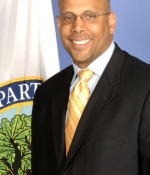
Jim Shelton, MA/MBA ’93, is planning to step down from his position as second-in-command at the U.S. Department of Education at the end of this year. Shelton joined the department in 2009 to lead its innovation and improvement programs, including the Investing in Innovation Fund; Promise Neighborhoods, a grant program providing “cradle to career” educational and social services to youth in underserved communities; and other initiatives focused on teacher and leader quality, school choice, and education technology. He has served as deputy secretary since May 2013.
In a written statement, Education Secretary Arne Duncan said, “Jim has brought a profound understanding of how to encourage innovation to address some of the biggest challenges faced by our education system and, more broadly, our country. From developing and managing signature reform programs such as the Investing in Innovation fund and Promise Neighborhoods to being a key leader on the President's My Brother's Keeper initiative and strengthening the Department's operations as deputy secretary, Jim has helped shape so much of this administration's education policy, programs and strategy over the last five-and-a-half years. Jim has earned a break, and we're so grateful to Jim for all he has contributed at ED, and to his family for letting him be part of the Education Department team for this long.”
Before joining the Department of Education, Shelton worked at the Bill & Melinda Gates Foundation as program director for education, managing a portfolio of programs and grants targeting increased high school and college graduation rates. He also headed the East Coast office of the New Schools Venture Fund and co-founded LearnNow, a school management company that eventually merged with Edison Schools.
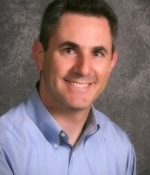
David B. Cohen, MA ’95, a 20-year teaching veteran and education consultant who has taught English for the last 12 years at Palo Alto High School, is taking a year-long sabbatical to travel around California writing about teachers and schools. He seeks to highlight the positive stories occurring at public schools throughout the state, visiting many of the teachers he has met as a co-founder and former associate director of the group Accomplished California Teachers. Cohen, a National Board Certified Teacher, is also blogging about his experiences on his website and at EdWeek Teacher.
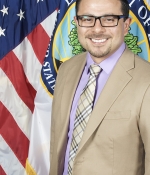
Marciano Gutierrez, MA ’06, was profiled for his teaching achievements by the White House Initiative on Educational Excellence for Hispanics in honor of Hispanic Heritage month. A STEP graduate, he teaches social studies at Alta Vista High School in Mountain View, CA. In 2012, Gutierrez was awarded a White House Teaching Ambassador fellowship in Washington D.C., and worked with Secretary Arne Duncan and his senior staff on teacher retention and recruitment issues. In 2011, he received a Fulbright Study fellowship to China and a National Teacher Fellowship from the Hope Street Group, and in 2009, a Bay Area Teacher of the Year award from the California Continuation Education Association. Several of Gutierrez’s lessons have been featured in the CCEA state newsletter and in the Alternative Education Principal’s Institute Handbook.
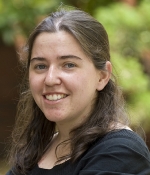
Daphna Bassok (MA ’03, MA ’05, PhD ’09) and Kihyun Ryoo (MA ’04, PhD ’09), have been named 2014 National Academy of Education/Spencer Postdoctoral Fellows. Bassok and Ryoo are among 24 career scholars chosen from around the world for the prestigious award, one of the most competitive in the field of educational research.
Bassok received the NAEd/Spencer Postdoctoral Fellowship for her research project, “Early parental investment and the emergence of school readiness gaps: Changing patterns over the past two decades.” Her study examines how changes in parenting practices since the early nineties are contributing to the early emergence of achievement gaps between children from low- and high-income families. Bassok is an assistant professor of education and public policy at the University of Virginia and an associate director of EdPolicyWorks, a joint project between the Curry School of Education and the Frank Batten School of Leadership and Public Policy. She specializes in early childhood education policy, focusing on the effects of policy interventions on the academic and social well-being of low-income children.
Ryoo was awarded the NAEd/Spencer Postdoctoral Fellowship for her research project, “Designing effective guidance for visualization technologies to help English Language Learners succeed in mainstream science classrooms.” Her study explores how to design effective guidance to help English Language Learners benefit from dynamic visualizations and develop an integrated understanding of the scientific concepts of energy and matter transformations. She joined the education faculty of the University of North Carolina at Chapel Hill as an assistant professor of learning sciences in 2012. Ryoo studies how technology can support science teaching practice and facilitate instruction for diverse learners, particularly ELLs and language-minority students.
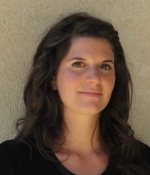
Pamela Levine, MA ’09, returned to Stanford GSE in 2012 as an education technology specialist. Last spring, she designed and taught “The digital classroom: Technologies and practices for educators," a graduate-level course on how educators can use technology to emphasize communication and higher-order thinking, drive inquiry, and create engaging learning opportunities. The course's paperless classroom model for instruction and sharing student work was featured at Stanford's 2014 Academic Technology Expo, which took place in October. After graduating from the POLS program, Levine taught at the elementary level in both traditional public and charter schools in Washington, D.C. and co-taught “Designing a new learning Environment,” a MOOC on the NovoEd platform.
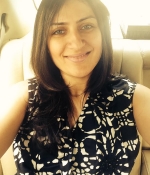
Vridhi Tuli, MA ’09, is teaching her first massive open online course at Udemy.com. The course, Introduction to business communication, teaches students how to speak at business meetings, explain products to clients, lead virtual and in-person presentations, and convince clients to buy their products. To date, entrepreneurs, designers, web designers, social media business owners, and college students from India, South America and the United States have taken the course.
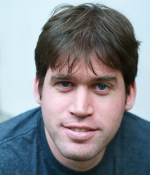
Brian Lukoff, PhD ’10, co-founded Learning Catalytics, a cloud-based educational assessment and engagement platform, as part of his work as a postdoctoral fellow in technology and education at the School of Engineering and Applied Sciences at Harvard University. The Learning Catalytics system provides teachers with real-time student responses to open-ended or critical thinking questions, determines which areas require further explanation, and then automatically groups students for further discussion and problem solving. In 2013, Pearson Education acquired the platform and hired Lukoff as the program director for Learning Catalytics. Lukoff now leads its product development in the areas of design, strategy and scaling.
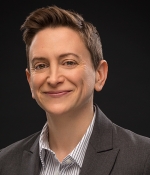
Abby Reisman, PhD ’11, was appointed assistant professor of teacher education at the University of Pennsylvania’s Graduate School of Education in July. Her work focuses on the pragmatics of translating engaging, text-based historical inquiry into classroom instruction with struggling readers. Currently, she studies the influence of professional development on social studies teachers’ practice in two school districts: Newark Public Schools and Prince William County Public Schools. Prior to her arrival at Penn, she was a visiting professor at Columbia University’s Teacher College and a researcher at the National Center for Research on Evaluation, Standards and Student Testing at UCLA. As a doctoral student at Stanford, Reisman directed the “Reading Like a Historian” project in San Francisco, and her 2011 dissertation won the Larry Metcalf Award from the National Council of the Social Studies. An article that emerged from her dissertation won the 2013 William Gilbert Award from the American Historical Association.
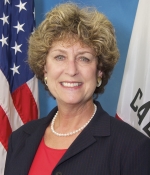
Jackie (Wities) Levy, MA ’70, was elected president of the Sacramento County Board of Education last July, and is serving her second term on the board as a trustee. Prior to her election, Levy was a high school teacher and principal for 35 years, most recently serving as principal at Cordova High School in Rancho Cordova, CA.
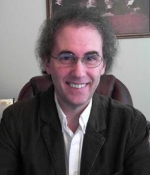
Jim Mathrusse, MA ’81, works for Polycom, Inc., where he manages a sales enablement team and runs learning management system training projects and operations. Prior to Polycom, he developed trainings and managed learning teams at Microsoft for several years. He and his family travel to Asia often and have homes in both the U.S. and China. He looks forward to connecting with GSE alums for community and networking.
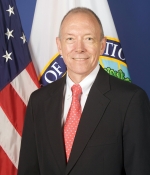
Ted Mitchell, PhD ’83, was appointed the top-ranking higher education official in the U.S. Department of Education. He was confirmed by unanimous vote on May 8 in the Senate. As under secretary of education, Mitchell, who previously was chief executive of the NewSchools Venture Fund, oversees all programs and policies in higher education at the federal level. For more about Mitchell, see http://stanford.io/TxIMLk.
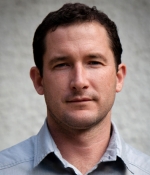
Damian Ewens, MA ’03, recently launched Achievery, a digital credential and badge platform for recognizing and verifying new and emerging skills and credentials of students. Achievery works exclusively with competency-based schools, colleges and high-quality learning models. He is most excited about supporting learning models that blend the soft and hard skills needed to be successful in college, career and life. Achievery clients include THIMUN Online Model United Nations and MOUSE Corps, a youth-centered design and technology program. Since its beta launch in October, the Achievery platform has been used in over 38 countries and has doubled its users every month. Prior to founding Achievery, Ewens spent 14 years teaching, developing schools and running a citywide afterschool system in Providence, RI.
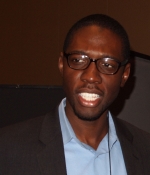
Travis Bristol, MA ’04, recently received his PhD from Teachers College, Columbia University. At his commencement ceremony, he and his family were photographed for Humans of New York, a popular photoblog featuring street portraits and interviews collected in New York City. Bristol returns to Stanford this fall as a postdoctoral fellow at the Stanford Center for Opportunity Policy in Education.
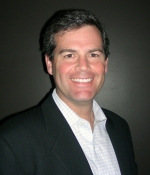
Brian Kaplan, MA ’07, is the new executive director of Industry Initiatives for Science and Math Education. IISME is a nonprofit that connects Bay Area teachers with meaningful summer fellowships at high-tech companies and research institutions, including Google, Cisco, Agilent, Genentech, and Stanford. Each year, about 150 IISME fellows work to translate their professional summer experiences into engaging and relevant curriculum for their students.
Kaplan notes that many STEPpies have participated in the IISME fellowship program, including members of his ’07 STEP cohort: Craig Young, Christina Nawas and Kyle Moyer. Another STEP ’07 graduate, Renee Trochet, is participating in her first IISME fellowship this summer at Virtual Computing Environment Company. IISME placed a total of 18 teachers this summer with the Stanford Office of Science Outreach. Kaplan welcomes hearing from members of the Stanford community who have worked with IISME in the past, or who are working at a company with summer project needs.
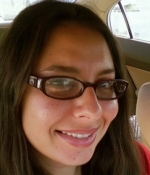
Diana Medina, '06, MA ’07, earned an MA in Educational Administration at San Jose State University last year. A fourth grade teacher for the Gonzales Unified School District in Gonzales, CA, she plans to eventually pursue an administrative position. Medina will marry UC Davis alum Paul Dietrich in July and writes, “To accompany me in this joyous event, some of my Stanford besties will be a part of my wedding: Alexis Meeker ’06, Kelly Schmutte ’06, Prisilla Gonzales ’06, Kat Enfinger ’06, and Liz Romero ’05.” She proudly notes that her brother Omar Medina ’14 recently graduated from Stanford and has started working at Google.
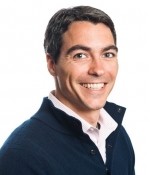
Jason Weeby, MA ’07, recently became senior fellow at Bellwether Education Partners, where he works with teams in policy and thought leadership, strategic advising and talent services to advance urban education reform efforts across the country on the state and city levels. Prior to joining Bellwether, Weeby worked for six years at Education Pioneers, building a nationwide network of high-caliber education leaders. Most recently, he was their senior director of new initiatives and led innovation efforts, including the launch of new programs and services. Weeby lives in San Francisco with his wife Ann and his son Asa. You can follow him on Twitter at @jasonweeby.
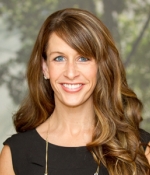
Danielle Harlan, MA ’09, PhD '11 (in political science), recently launched Rules For Alphas, an organization supporting outstanding leaders and entrepreneurs in living well and maximizing their impact. She is writing a book on the same topic and welcomes contributions and feedback from members of the GSE community on personal or professional advice they would give to a mentee, lessons they wish they had learned sooner, and topics that they wish to learn more about, including how to juggle career and children. Those interested in contributing may contact her at Danielle@rulesforalphas.com.
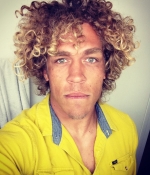
Shane Moise, MA ’09, is the founding director of Beyond the Checkbox at UC San Diego, a collaborative project that explores the diverse social identities of UC San Diego students, faculty and staff. The project features a series of portrait photographs with answers to the question, “Who are you?” The respondents are given the opportunity to tell their stories and experiences on their own terms, challenging preconceived labels and stereotypes. Moise is exploring ways to scale the project to other institutions, and is developing curriculum modules for self-reflection and the exploration of identity issues. Moise also plays rugby for the Pacific Rugby Premiership with Old Mission Beach Athletic Club. He says, “OMBAC rugby has become what The Farm was for me in the Bay Area. Missing The Farm and wishing the best to the class of 2015 next year!”
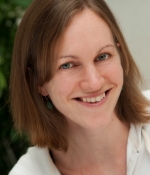
Helen Snodgrass, MA ’10, starts a new position next year as a science content specialist for Houston’s YES Prep Public Schools, where she also teaches AP biology. She won the Outstanding New BiologyTeacher Achievement Award, given by the National Association of Biology Teachers. The award recognizes an early-career biology/life science teacher who has developed an original and outstanding instructional program or technique and made a contribution to the profession.
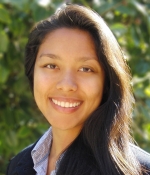
Reeta Banerjee, MA ’13, released Horse Sense, an app for the iPhone and iPad that aids in personal problem-solving. Horse Sense features an animated horse named Sage who helps users gain insight on a range of problems from dealing with career doubts to managing an interpersonal conflict. Sage the Horse simulates a mentor or life coach by asking questions in a safe, non-judgmental environment to generate ideas that address the problem. The structured questions blend problem-solving research from mathematics and science, expressive writing, counseling techniques and the Socratic method. Banerjee designed the app for her master’s project in the Learning, Design, and Technology Program. Horse Sense is now available on the Apple App Store.